- Entertainment
- Sports Sports Betting Podcasts Better Planet Vault Mightier Autos Newsletters Unconventional Vantage Experts Voices
- Subscribe for $1
- Sports Betting
- Better Planet
- Newsletters
- Unconventional

Tunisia's Ben Ali and Family Ran a 'Mafia State'
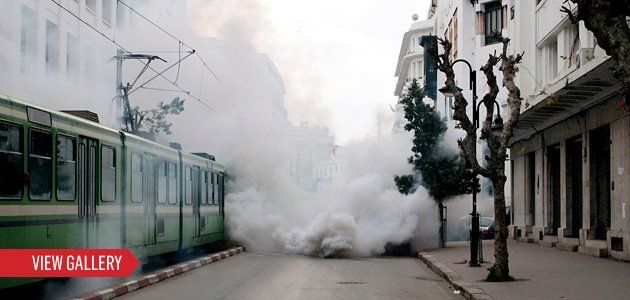
At first, the family of Tunisia's toppled president, Zine El Abidine Ben Ali, refused to accept that their decades of profiteering and profligacy had come to an end. As rioting killed scores of people in Tunisia's streets, Ben Ali's daughter and her husband holed up in the luxury suites of the Castle Club at Disneyland Paris. Ben Ali's wife, Leila Trabelsi, took her personal jet from Tunisia—her "shopping plane," as protesters called it—and grabbed as much mad money as she could get her hands on. By some accounts, that included a ton and a half of gold from the nation's central bank. Tunisia's first family had such a reputation for ruthless extravagance that even after the bank denied the story, the street continued to believe it. A new rallying cry broke out: "Hang them all—but let's get our gold back first!"
Looters didn't wait. At one palatial villa after another, they carried away anything of value. Last week, only days after Ben Ali and his wife fled to exile in Saudi Arabia, their opulent homes and hideaways in Tunisia had been stripped bare. In living rooms and bedrooms with commanding views of the sun-flecked Mediterranean, shattered glass crunched underfoot. The incinerated carcasses of a Mercedes and an SUV blocked the road to the house of one of Trabelsi's nephews. Men carrying machetes, claiming they were guards, laughed as they described piles of pornography that had been carted away. At the home of Leila's sister Jalila, empty boxes from Swarovski, Chanel, and Prada littered the rooms. At another nephew's villa, as a kind of monument to indolence, was an elevator that went up only one floor. In all of the houses, the smell of burned plastic hung in the air, mingled with the ammonia scent left by rioters who had urinated on the wreckage.
Visions of transformation flashed across the region via cell phones, Twitter, Facebook, and satellite TV. For a moment, at least, people in all corners of the stagnating Arab world dared to hope that the triumph of the Tunisian street might do for them what the fall of the Berlin Wall did for the people of the decaying Soviet empire. A poll of readers by the Arabic-language news site Elaph showed that 86 percent wanted the popular movement in Tunisia to spread beyond the country's borders.
But is Tunisia the first regime to fall, or is it only another false hope? "A lot of people in the Arab world have Tunisia envy right now," says Fouad Ajami of the Johns Hopkins School of Advanced International Studies. They may have forgotten the similar burst of enthusiasm that swept the region in 2009, when millions of protesters took to Iran's streets after the disputed presidential election there. That dream evaporated as soon as Tehran's thugs crushed the uprising. Right now it's impossible to predict with certainty where Tunisia is headed—whether toward more democracy, a new dictatorship, perhaps even an Islamist political revival in what has been the Arab world's most militantly secular state. "There's a delicate space between the autocrats and the theocrats," says Ajami. "The question is whether people will have Tunisia envy in a month."
The fall of Ben Ali has accomplished one thing nonetheless: it has exposed the corrupt common denominator of every regime in the Arab world. They are all, in effect, mafia states—entire nations run by families for their own benefit. Whether they call themselves republics or monarchies, whether they are allied to the United States or opposed to it, are on the list of states supporting terrorism or fighting it, have made peace with Israel or not, they are all family businesses. Whether they claim to be secular or follow Sharia or try to chart a course in between, their governance has less in common with the Magna Carta than it does with La Cosa Nostra.
In lands where the building block of society is not the individual but clans and tribes, government has always tended to be a matter of someone else's family telling your family what to do. But in this region, where at least half the population is now under the age of 30, is more educated than any previous generation, and is more frustrated than ever before, the traditional model just doesn't deliver enough hope for the future. The riots that brought down Ben Ali began when police seized a young fruit vendor's cart, and he burned himself to death. He was scarcely alone in his sense of desperation: in only the past week, at least 10 other people have set themselves ablaze in Egypt, Algeria, and even Mauritania. Will that wave of self-immolations provoke new uprisings? "Revolutions are 'inevitable' only in hindsight," cautions Ajami. As recently as a month ago, nobody would have predicted that Ben Ali would be first to fall.
As Tunisia's intelligence chief in the 1980s, Ben Ali built close ties to the CIA, and for decades Washington was happy to make excuses for him. In 1987 he staged a bloodless coup against the doddering president, Habib Bourguiba, who more than three decades earlier had become the father of modern Tunisia. Ben Ali cast himself as a bulwark against militant Islam, and after 9/11 became one of the Bush administration's most reliable allies in the Global War on Terror. He also played by the economic rules of the International Monetary Fund, embraced globalization, and was rewarded with money and praise for his progressive policies. Diplomats in Tunis told NEWSWEEK in 2003 that Tunisia was "a country that works"—a relatively benign regime where criticism of the leader might bring torture and jail, but probably not death. It was "a soft dictatorship," the diplomats said, "more like Singapore or South Korea in the 1980s than like some other Arab countries today." But all the while, Ben Ali and his wife, along with several members of her family, were living out the starring roles in a real-life gangster movie.
Leila Trabelsi, like many another mob girlfriend, came from a humble background: one of 11 children of a Tunis fruit-and-nut peddler. A beautiful brunette, she was working as a hairdresser when she met Ben Ali, and before he became president (or even divorced his first wife, for that matter), she had borne him their first child. The stolid Ben Ali, who had developed quiet, deliberate, ruthless ways in the intelligence services, listened to only a handful of advisers, but Trabelsi's voice grew in importance. "She was not as stupid as people thought," says a senior Western diplomat in Tunis. In recent years there was frequent speculation that Ben Ali, 74, was grooming the 53-year-old Trabelsi as his successor. Or perhaps that she was grooming herself. "The hairdresser would be monarch," says Ajami.
As her influence grew, so did that of her siblings and nephews, who shared little of Ben Ali's sense of patriarchal discretion. In 2006, for instance, a $3 million luxury yacht called the Beru Ma disappeared off the coast of Corsica. A few weeks later, the vessel cruised into the Tunisian port of Sidi Bou Said with a fresh coat of paint and a new set of registration papers. The man reportedly behind the caper was Leila's nephew Imed Trabelsi, whose stocky frame and slicked-back salt-and-pepper hair were worthy of a lieutenant in the Soprano family.
Unfortunately for Imed, who had allegedly paid a Frenchman $100,000 to hijack the yacht, its rightful owner was Bruno Roger, the chairman of the investment bank Lazard Frères and a close friend of French President Nicolas Sarkozy. The theft could have easily led to a diplomatic row, but the French, like the Americans, thought Ben Ali was a useful ally. They didn't want to insult his family. The yacht was returned quickly but quietly. Imed and his brother Moez landed on an Interpol wanted list, nothing more. The episode was hardly the end of Imed's storied career in the rackets.
Ben Ali's relatives controlled nearly every aspect of the Tunisian economy, from banks and car dealerships to real estate and grocery stores. "Often referred to as a quasi-mafia, an oblique mention of 'the Family' is enough to indicate which family you mean," then–U.S. ambassador Robert Godec wrote in a 2008 cable that was recently published by WikiLeaks.
"The Family" was in fact two families, and, just like the mafia, they divided their turf. The Ben Alis controlled the central coast region while the Trabelsis ran the Greater Tunis area. The family members, particularly the nouveau riche Trabelsis, cruised around Tunis in the latest-model Porsches and Benzes, built extravagant seaside mansions, and threw lavish parties. Ambassador Godec wrote about a dinner with Ben Ali's son-in-law Sakher al-Materi at a house decorated with ancient Roman columns and frescoes. Ice cream and frozen yogurt were flown in from St-Tropez for the dinner. And for amusement Materi had a pet tiger named Pasha he kept in a cage in the house. "Their home in Hammamet was impressive," Godec wrote. "With the tiger adding to the impression of 'over the top.'?"
Even in this motley clan, the "yachtjacker" Imed stood out. He ordered suits from Italy and had a taste for expensive cigars and French wine. He often threw extravagant parties at his house or a restaurant called La Petite Etoile in the Tunis suburb of La Goulette, where he had himself made mayor, and he surrounded himself with foreign dignitaries, politicians, and artists. Last July, Imed organized a concert featuring Italian opera singer Giovanna Nocetti at Karraka, a 16th-century fortress. "He thinks he's the Godfather," says Ahmed, 30, an IT consultant who occasionally worked for Imed and asks that only his first name be used. "He quoted from the movies all the time." Imed's favorite line was from The Godfather: Part III —"Never hate your enemies. It affects your judgment."
Imed is widely believed to have funded his extravagant lifestyle through a standard mob tactic: the shakedown. He had set up Noor, a charitable foundation that claimed to give medical aid to poor children, but according to a prominent businessman in La Goulette who asked not to be identified at this volatile moment, it was only a front to strong-arm wealthy entrepreneurs. "Groups of men would come around and say, 'Imed sent us to collect cash for Noor,'?" says the businessman. "But the money was for Imed. In Arabic, Noor means 'light,' but this was very dark." Along with his shady dealings, Imed also ran seemingly legit businesses. (Godec singled him out as one of the country's most important "economic actors.") One of his recent schemes was a plan to raze the old market in La Goulette to make way for a shopping mall, which upset many residents. "Imed was a piece of s--t," says the businessman, comparing him to Saddam Hussein's viciously deranged sons, Uday and Qusay. "The worst."
Imed reportedly was stabbed to death at the Tunis airport on Jan. 14, as the Ben Ali regime collapsed, but no Tunisian officials have stepped forward to confirm the attack.
Only the day before, secretary of State Hillary Clinton delivered an unusually impassioned speech in Qatar. "People have grown tired of corrupt institutions and a stagnant political order," she said, calling special attention to a member of the audience "whose work on human rights and democracy in Tunisia I admire." Then, with unusual vehemence, Clinton warned that "in too many places, in too many ways, the region's foundations are sinking into the sand."
The Obama administration was never especially comfortable with the Tunisian dictator and his clan. Diplomatic traffic had been amassing evidence against them even before Obama came to office, and when Ben Ali had himself reelected for the fourth time in October 2009, with 89.6 percent of the vote, Obama was among the world leaders who pointedly failed to send a note of congratulations. And when WikiLeaks released the Godec cables this past December, they didn't say much about Ben Ali's conduct that was news to Tunisians—but the tone of the traffic suggested that Washington wouldn't be too sorry to see the last of him. Nevertheless, Obama had also made it clear from the start that he had no intention of taking on George W. Bush's role as the apostle of democracy in the Arab world. Too many democratic experiments there—in the Palestinian territories, in Lebanon, in Iraq—had become too problematic.
Now Tunisia is forcing him to confront the question. "This is a clarifying moment for the Obama presidency," says Ajami, who was a friend and adviser to Bush. It may be no use for Washington to proselytize for democracy in the Arab countries, but passive acceptance of mafia states is not a long-term option either. Still, most of them are not going to change on their own. Can the United States make them offers they can't refuse? The short answer is probably not. That's something only their own people can do. But sometimes, as in Tunisia, the people can surprise us all.
With Mike Elkin in Tunis and Mandi Fahmy in Cairo
Uncommon Knowledge
Newsweek is committed to challenging conventional wisdom and finding connections in the search for common ground.
About the writer
To read how Newsweek uses AI as a newsroom tool, Click here.

- Newsweek magazine delivered to your door
- Newsweek Voices: Diverse audio opinions
- Enjoy ad-free browsing on Newsweek.com
- Comment on articles
- Newsweek app updates on-the-go

Top stories
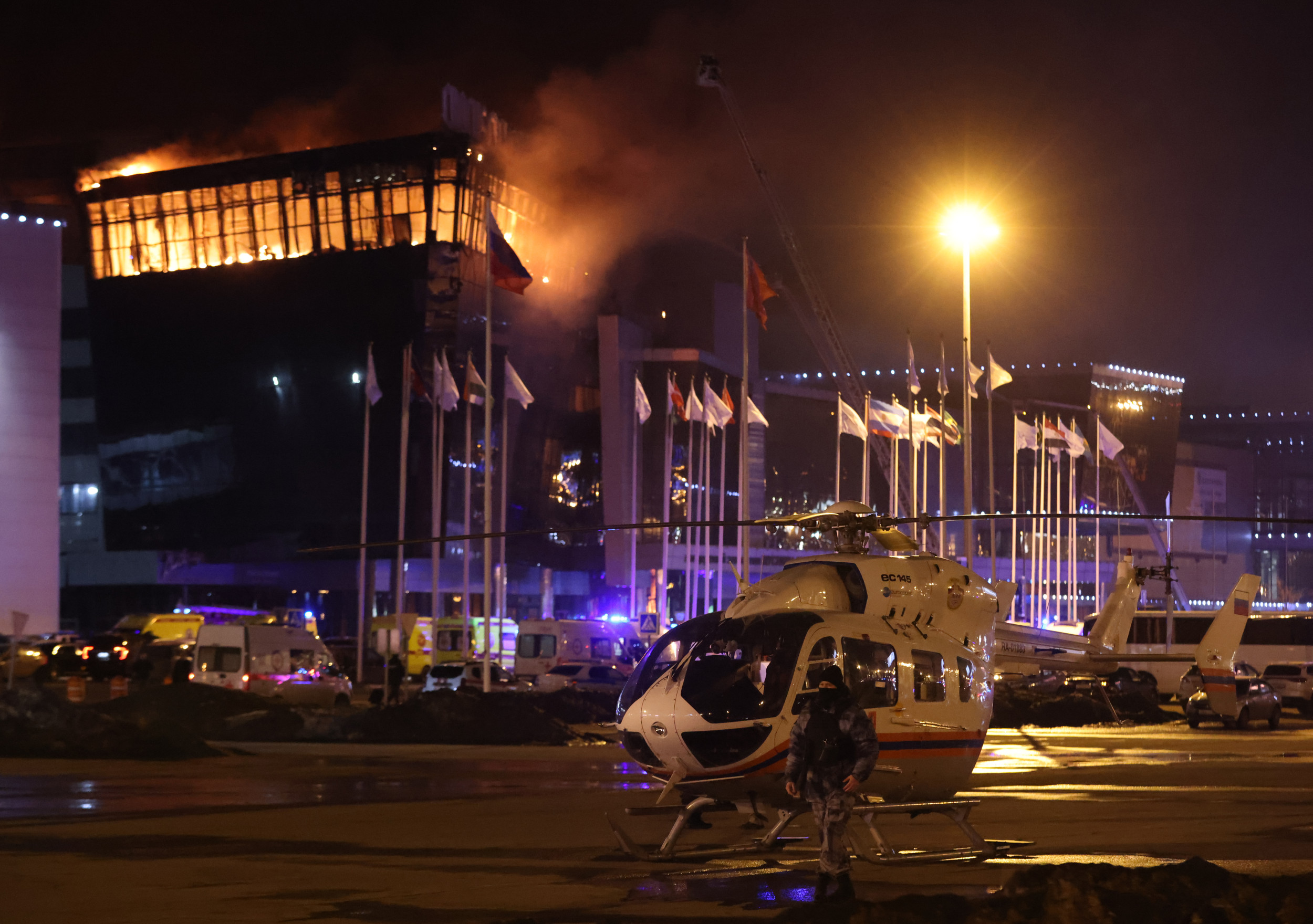
With World's Attention on Gaza, ISIS Is Making a Global Comeback
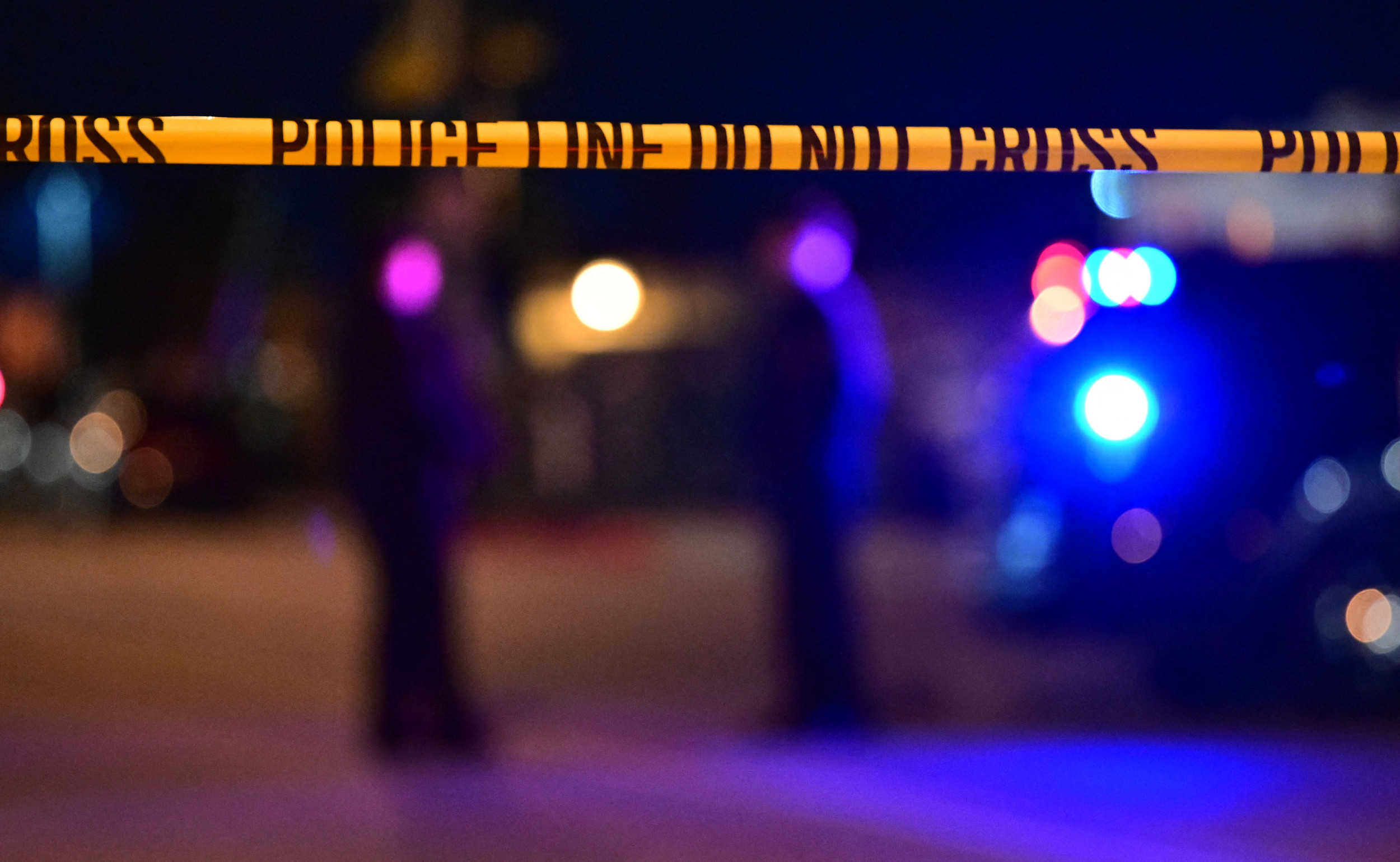
Sebastian Rogers Update: Search for Clues Takes New Turn
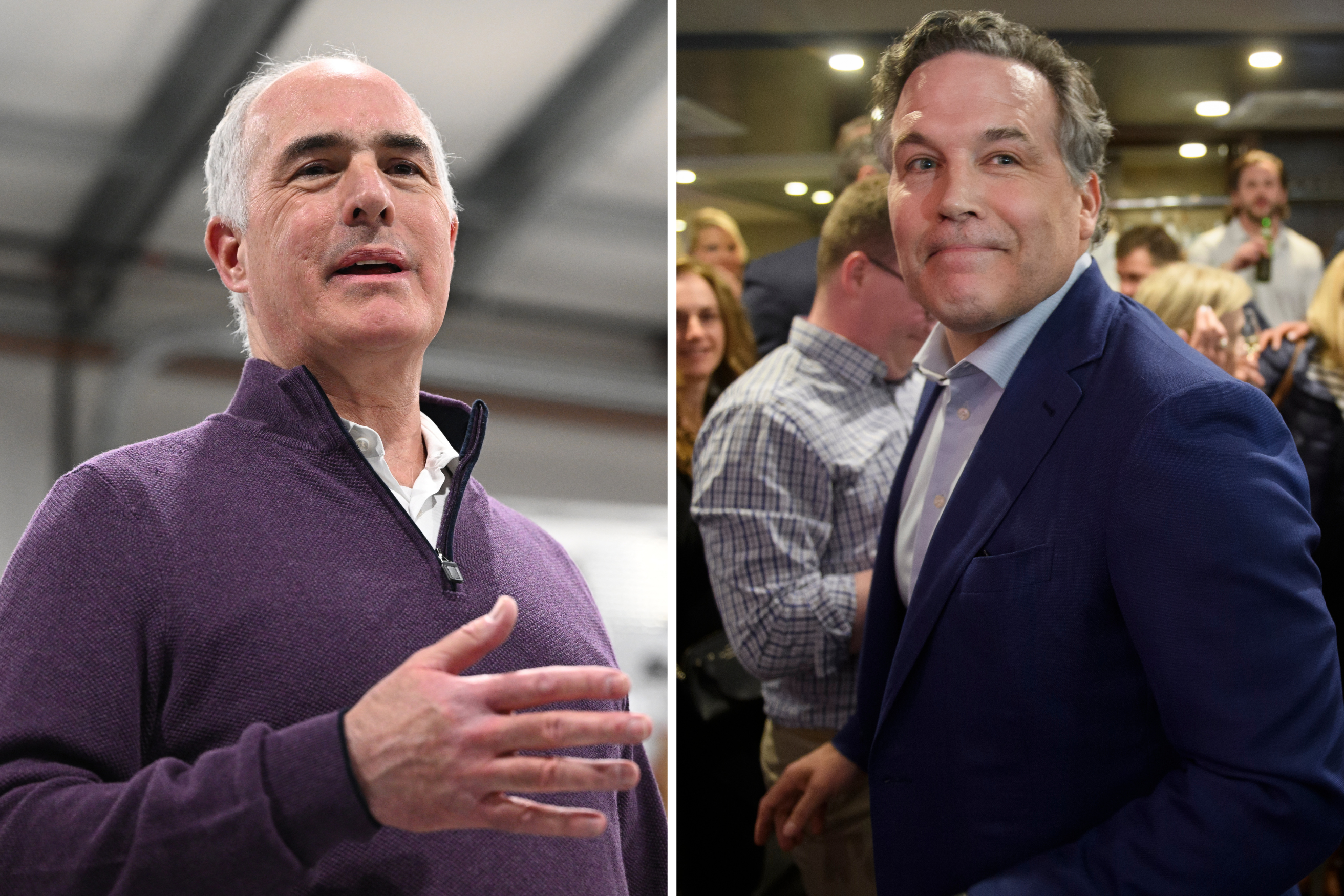
David McCormick's Chances of Beating Bob Casey in Pennsylvania: Polls

Kate Middleton Theorists Turn on William Despite Cancer

- International edition
- Australia edition
- Europe edition
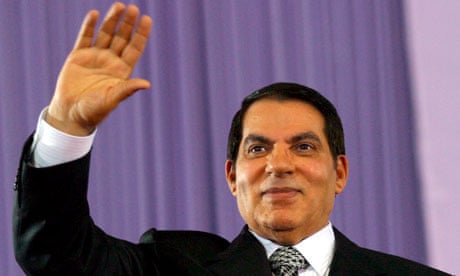
Ben Ali's family and friends
- Zine al-Abidine Ben Ali
The ousted Tunisian president now lives in Saudi Arabia . Tunisia has asked Saudi Arabia to extradite him, but to no avail. The 75-year-old has so far been sentenced in absentia to more than 35 years in prison, in swift trials that some observers say lacked legal rigour. The most serious charges he faces so far, over police shootings of demonstrators during the revolution, are being heard in a military court.
Leila Trabelsi
Ben Ali's second wife, 55, accompanied her husband into exile along with family members including the couple's young son Mohammed. Her profile as an example of empowered Arab womanhood, chairing NGOs and conferences, had long rung hollow for many Tunisians. The Tunisian press now reports that she makes frequent trips to Kuwait or Qatar. For the past year she has, like her husband and several relatives, been subject of an international arrest warrant issued by the Tunis office of Interpol.
Belhassen Trabelsi
On 14 January last year, the most influential of Trabelsi's brothers asked a skipper on his payroll to take him discreetly across the Mediterranean in his yacht, paying him a 5,000 dinar (£2,000) bonus cash as he stepped on to Italian soil. Currently in Canada, where he is believed to have substantial assets. His business interests include an airline, real estate and a cement plant. He is married to Nefissa Djilani, daughter of the former chief of Tunisia's Utica business association – the equivalent of the CBI.
Mohammed Sakhr El Materi
Scion of a well-connected political family from before Ben Ali's time, is married to the former president's daughter Nessrine Ben Ali. His Princesse Holdings controlled wide-ranging interests, and he elbowed his way on to the list of shareholders at Nestle Tunisia, for example. He is believed to now live in Qatar, a country which, paradoxically, has good relations with Tunisia's new Islamist-led government. In July 2009, the then US ambassador who had dined with him and his wife, reported that the menu had included frozen yoghurt flown in by plane from Saint-Tropez, and that the couple kept a large tiger that consumed four chickens a day. Sakhr El Materi told the ambassador he was pleased to have helped Prince Andrew fix up appointments on a visit to Tunis.
Slim Chiboub
Businessman married to Dorsaf Ben Ali, a daughter from the ex-president's first marriage, has had his assets frozen along with his wife's. Chiboub, who until the revolution chaired the Esperance football club, has denied any illegal enrichment. He is now believed to be based in Qatar, making frequent visits to Paris. He told the Tunisian media in an interview last July that he hoped to return to the country "once spirits are calmer". In February Tunisia's official horse-breeding foundation said it had "recovered', with the help of the security services 130 thoroughbreds that had been in Chiboub's possession.
Imed Trabelsi
Nephew of the first couple successfully defended himself in 2008 court case in which he was accuse of involvement in the theft of a luxury yacht from a Corsican harbour. He attempted to forge a political career as mayor of La Goulette, a beachside town north of Tunis. After the revolution, rumours circulated that he had fled the country, but in a Tunis court appearance in June he was sentenced on appeal to four years in prison for possessing illegal drugs. He faces further charges over real-estate deals.
- Arab and Middle East unrest
- Middle East and north Africa
- Saudi Arabia
Most viewed
Wife of deposed Tunisian leader despised by many
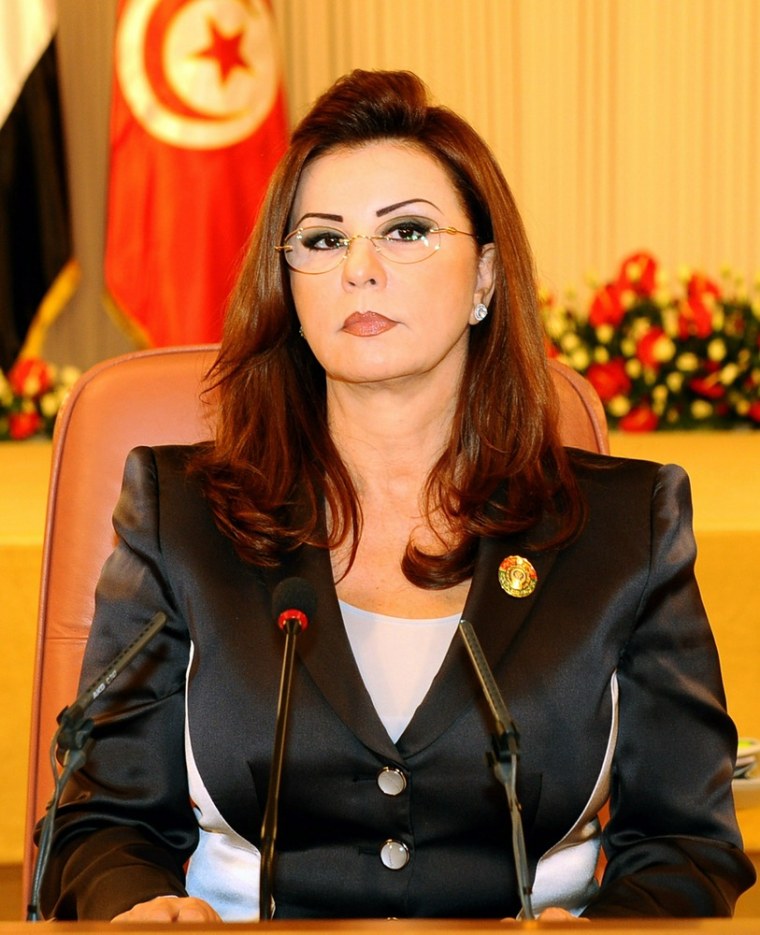
Tunisians couldn't stand her even more than they couldn't stand him.
The end of President Zine El Abidine Ben Ali's iron-fisted, 23-year rule brought joy to many ordinary people in this North African nation — and they were especially elated at the prospect of life without his wife and her rapacious family.
The clan of former first lady Leila Trabelsi, a one-time hairdresser who rose to become Tunisia's most influential woman, was widely despised as the ultimate symbol of corruption and excess. Leila and her 10 siblings are said to have operated like a mafia, extorting money from shop owners, demanding a stake in businesses large and small, and divvying up plum concessions among themselves.
Their control over the North African country's economy was vast. The Trabelsi and Ben Ali's own families were said to have a stake in Tunisian banks and airlines, car dealerships, Internet providers, radio and television stations, industry and big retailers.
And when mass protests forced Ben Ali to flee Friday to Saudi Arabia, his peoples' pent-up rage was directed more at Leila's side of the family than at her husband and his authoritarian regime.
Retribution was swift. Within a day of Ben Ali's departure, many of the sumptuous villas and businesses belonging to the Trabelsis were pillaged and burned, and some reports said one prominent family member was killed by an angry mob. A Tunis Air pilot who refused to take off with five fleeing family members on board has become a national hero.
A branch of the Zeitouna bank in Tunis founded by Ben Ali's son-in-law was torched, as were vehicles made by the car brands he distributed, including Kia, Fiat and Porsche.
"They (the Trabelsis) are thieves, tricksters and even killers," raged Tunis resident Mantasser Ben Mabrouk. "Their only goal was to make money in whatever way they could."
His friend Mohamed Gaddahi agreed, laying — as many here do — much of the blame for the regime's abuses squarely on the Trabelsis.
"The president did lots of good, but the family did lots of harm to Tunisia," Gaddahi said.
U.S. diplomatic cables released by WikiLeaks appear to shore up that conclusion. A June 2008 cable from the U.S. Embassy in Tunis describes a report by anti-corruption group Transparency International saying: "Whether it's cash, services, land, property ... President Ben Ali's family is rumored to covet it and reportedly gets what it wants."
The economic fallout of the Trabelsis' web of corruption and influence-mongering was palpable, the cable said, with "Tunisian investors — fearing the long-arm of 'the Family' — forgoing new investments, keeping domestic investment rates low and unemployment high."
A lack of jobs in this highly educated nation fueled the month of popular protests that toppled Ben Ali. The uprising began in December after a despairing university graduate who sold fruits and vegetables without a permit set himself on fire and died because police confiscated his goods.
The co-author of a book on Leila Trabelsi, "La Regente de Carthage," says the Trabelsis played an "absolutely capital" role in the fall of the regime.
"Tunisians were absolutely aware of what they were up to and they got to a point where they were sick and tired of their behavior," said author Catherine Graciet. Still, she noted that "we can't put all the blame on the Trabelsis, because it was Ben Ali himself who allowed them to act that way."
Leila Trabelsi was born in 1957 — the fifth of 11 children of a dried fruits vendor and a housewife, according to Graciet's book.
After working as a hairdresser and having a short-lived first marriage, Trabelsi married Ben Ali in 1992, five years after the bloodless palace coup in which he replaced aging independence hero Habib Bourguiba as president.
The marriage — which was also Ben Ali's second — catapulted the once-modest Trabelsi clan to national prominence.
Her oldest brother, Belhassen, known as the clan chieftain, is said to have ruled over the family's many mafia-style rackets.
Her nephew, Imed Trabelsi, was reputed to be the spoiled brat of the family and the former first lady's favorite, according to the book. Known as a playboy, he enjoyed a jet-set lifestyle, complete with a garage full of sports cars and yachts.
French prosecutors suspected him and another of Leila Trabelsi's nephews of having ordered the 2006 theft of a yacht belonging to a French investment banker that turned up in the Tunisian port of Sidi Bou Said. Still, a French judge ruled that the two Trabelsis could be tried at home, despite the fact that Tunisia was ruled by their uncle. It was not clear if any trial was ever held in Tunisia.
Some Tunisian media reports said Imed Trabelsi was recognized at the Tunis airport as he attempted to flee the country hours after the regime crumbled — and was attacked by an angry mob. Conflicting reports said he was stabbed by a fisherman in the town where he was mayor, an upscale coastal town near the capital. He reportedly died from his wounds at a Tunis military hospital over the weekend.
It was not immediately possible to verify those reports.
Graciet said the ex-first lady tried to block the book's release on the ground that it painted an unflattering portrait of her, but a French judge rejected Trabelsi's legal motion.
Ben Ali fled to Saudi Arabia, and Tunisian media reported he was joined by his wife and a few other relatives. The couple has two girls and one boy.
The whereabouts of all family members was unclear. France, which ruled Tunisia as a protectorate until it won independence in 1956, said some Ben Ali relatives were in France but they were "not welcome" to stay. Media reports had them at a hotel near the Disneyland Paris resort.
French government spokesman Francois Baroin also said France had taken "the necessary steps" to block any suspicious movement of Tunisian assets linked to Ben Ali and his entourage that might be squirreled away in France.
Mohamed Ben Kilani, the pilot of a scheduled Tunis Air flight to Lyon, France, became an instant hero at home after he refused to take off Friday with five members of the Trabelsi family on board, airline officials say.
"It was a courageous act that merits being highlighted," Ali Miaoui, director of Tunis Air's French division, told AP Television News.
This is not the first time that anger has crystallized toward the wives of dictators, despots and autocrats.
In the 1980s, the public was more outraged at the spending excesses of Philippine first lady Imelda Marcos — a shoe addict of legendary proportions — than at her husband Ferdinand Marcos, who allegedly amassed billions of dollars in ill-gotten wealth during his 21 years in power.
Jean-Claude "Baby Doc" Duvalier's marriage to the flamboyant and free-spending Michelle Pasquet estranged the Haitian dictator from his father's old supporters. He was deposed in 1987.
The Tunisia Heist
Ten years after the first arab spring country overthrew strongman zine el abidine ben ali, tunisians are trying to recover his stolen assets. it’s not going well.

Fethi Bejaoui, an archaeologist, still remembers his disbelief as he walked through Sakher El Materi’s villa.
It was 2011, just a few weeks after the revolution that had deposed El Materi’s father-in-law —Tunisian President Zine El Abidine Ben Ali — and forced the dictator and several members of his family to flee the country in private jets and yachts to Italy, France, and the Persian Gulf.
It seemed the family never had a plan B. As they fled on the night of Jan. 14, they were seen frantically stuffing wads of U.S. dollars into suitcases and bars of gold into handbags. According to one report, a member of the family even tried to make a last-minute transfer of $2.9 million — which was denied. Never could they have imagined that one day they’d be exiled from Tunisia, caught off guard and unprepared, forced to abandon their sprawling palaces, villas, businesses, and everything in them. They had thought their dynasty would last forever, with El Materi poised to become Ben Ali’s successor.
When Bejaoui ventured deeper into the home that El Materi and his wife Nesrine Ben Ali shared in the coastal town of Hammamet, it was ghostly quiet. The infinity pool had gathered leaves and debris; expensive furniture and family photos had been left in their usual arrangement; the cage that had housed the couple’s pet tiger, “Pacha,” stood empty.
“It was enormous and palatial,” he recalls, 10 years later in his office nestled among the ruins of ancient Carthage. “Just like a museum.”
But it was what greeted Bejaoui as he entered the living room that left him speechless. Stone epitaphs and engravings from the 2nd and 5th centuries had been broken apart and crudely inserted into the wall above the fireplace. Two ancient Roman columns had been erected next to a large stove in the kitchen, providing ceiling support. A precious marble bust of a woman had been hollowed out to form a wash basin. Bejaoui, stunned by the flagrant abuse of irreplaceable heritage, struggled to hold back his tears.
“These objects had just been torn apart,” he says. “It was criminal. Once you tear a monument apart, it’s over, it’s finished. We will never know the stories behind these artifacts.”
This looting and destruction of priceless treasures was symbolic of the excesses of El Materi and the rest of the Ben Ali clan, one of the many ways in which they had wantonly helped themselves to much of Tunisia’s wealth. But the traces of the fortune they left behind turned out to be just the beginning; much of their money lay in the hundreds of properties and businesses the family had hoarded throughout the years or hidden in offshore bank accounts across the globe. These assets would prove to be much less visible, or retrievable, than the treasures Bejaoui found at the villa.
In 2018, El Materi’s villa was reportedly sold to an unnamed sports star for an “unimaginable” price. At the time, the villa was estimated to value $17.5 million. The money made from the sale of the villa was returned to the Tunisian state — as was to be the fate of many of the family’s near 500 properties.
While the excessive accumulation of wealth by the former dictator and his family indicates they sat atop the kleptocracy in Tunisia, they did not represent the entirety of the corrupt system that saw billions stolen from Tunisian coffers over the past decades. As various committees and commissions were created, stalled, and then reestablished to recover the assets stolen by the Ben Ali-Trabelsi clan, some have argued that the corrupt tendencies of the former regime endured and that endemic mismanagement has prevented the return of these assets to the state.
From the mid-1990s, the dictator and his family had amassed vast swaths of wealth through the Tunisian economy. The U.S. think tank Global Financial Integrity estimates that between 2000 and 2008, over $9 billion was lost to illicit financial activities and official government corruption. Meanwhile, many Tunisians struggled to find employment or provide a dignified life for themselves. In 2010, the unemployment rate among graduates was 23%. There were also gaping economic disparities between the coastal elites and the interior regions, with poverty rates in the latter almost four times higher than those in the rest of the country at the time of the revolution. The family’s ransacking of the economy was one of the main grievances that drew people out onto the streets in 2011, with many chanting “The Trabelsis have eaten the whole economy!”
Ten years on, many members of the Ben Ali-Trabelsi clan remain in exile, scattered across the world in Saudi Arabia, the Seychelles, and France. Some, like Leila Trabelsi’s nephew Imed, are in jail, while in-laws Slim Cheboub and Marouane Mabrouk, having either proved their innocence or made amends, have been allowed back to Tunisia. But the question that has dogged Tunisians for a decade remains — what happened to the money? Where is it hidden, and will Tunisians ever be able to recover what was stolen from them?
The answer is somewhat depressing. In the context of a global financial system that caters to and protects the very wealthy, it is unlikely Tunisia will ever get all the money back — estimated to be $17 billion by the Tunisian Association for Financial Transparency. But Tunisia could still get back part of it.
Today, with the country facing an ever-worsening economic crisis, experts argue that the asset recovery question has become even more urgent. When compared to Libyan ruler Moammar Gadhafi’s $150 billion, Ben Ali’s fortune may seem small, but to a country facing near bankruptcy, it’s substantial.
“It is more of a symbolic gesture, to get this money back. This is Tunisians’ money,” says Mouheb Garoui, founder of Tunisian anti-corruption NGO I-Watch. “But right now, every euro and dollar counts. We have never seen a crisis like this before.”
Since 2011, Tunisia has been plagued by sinking wages and growing joblessness, with unemployment rising to 18% amid the coronavirus pandemic. Tunisia’s 2021 budget forecasts borrowing needs at $7.2 billion, including $5 billion in foreign loans.
“Even $1 billion is meaningful,” says Jamel Ksibi, a Tunisian businessman who has managed several construction companies since the 1990s. “$1 billion would give employment to thousands and thousands of Tunisians. If we invested it in infrastructure or roads or flooding protection for example, that would transform regions and give employment.”
But as more time passes and the country’s crisis deepens, the likelihood of Tunisia ever recovering the stolen money wanes.
It is useful when examining Tunisia’s asset recovery strategy to first establish how the Ben Ali-Trabelsi clan operated and how exactly they became so wealthy. The clan consisted of Ben Ali and his wife Leila Trabelsi; Ben Ali’s children, both with Leila and with his first wife Naima Kefi, and their spouses; and the extended families of Ben Ali and Leila, including Leila’s notorious brother Belhassen and nephew Imed Trabelsi, accused of being the main drivers behind the family’s nefarious accumulation of wealth and seizure of property.
The Trabelsi family emerged in the mid-1990s, after Ben Ali’s marriage to Leila, just as Tunisia began its push toward greater privatization. The Trabelsis’ proximity to power gave them access to information about upcoming deals, and they would position themselves strategically. They would abuse their influence — and people’s fear of the regime — to secure these deals. In 2014, the World Bank released a report that found that the companies owned by the Ben Ali-Trabelsi clan made up 21% of private sector profits, despite only accounting for 3% of its output and 1% of its employment.
Researcher Mohamed-Dhia Hammami has mapped out the Ben Ali-Trabelsi networks using data on the companies confiscated after 2011. “Here you have an integrated, giant network at the center where you can find the most influential figures — Sakher El Materi, Belhassen Trabelsi, and many others,” he says, zooming in on a graphic that resembles a knotted spiderweb on his iPad. “However, you also find all of these individuals who are not connected to anyone but whose assets were confiscated because they had some form of relationship with the regime.”
Hammami explains that although there was no chain of command — those in the Ben Ali-Trabelsi network were not simply obeying the orders of Ben Ali — there existed a kind of social hierarchy. According to where they were positioned, some had more authority over others.
“The connections that matter are the ones between themselves: They were cooperating together for the accumulation of wealth. They constituted a community on their own.”
Ksibi, the businessman, remembers how the business climate began to sour as this community gained power.
“We started to notice — every year, every month — that their influence was expanding,” recalls Ksibi in an interview in his office in Tunis’ main business district. “Every sector started to be controlled. They started with imports, then tourism, then certain agriculture domains, even transport. The evolution was fast and intense.”
Ksibi says that in order to survive, one had to tread lightly and avoid confrontation with the interests of the family or their friends and associates. “We started to be afraid of becoming competitors, truly afraid, because at the time you risked years in prison for one misstep.”
“These were barriers that instilled real fear.”
Once the dictator and his family fled, these barriers melted away.
In February 2011, financial specialist Jean-Pierre Brun was part of a team from the Stolen Asset Recovery (StAR) initiative, a partnership between the World Bank and the U.N. Office on Drugs and Crime, that traveled to Tunis to meet and offer assistance to the new government. Still in the throes of revolution, the city was on high alert. Gunshots and the sounds of armed conflict could be heard in the street outside their meeting room.
“As soon as the government changed, we were on the ground very quickly,” says Brun. “Efforts to recover the stolen assets were identified as one of the first priorities by authorities. … Expectations were very high.”
As news of the clan’s departure spread, the protestors demanded the restitution of the stolen assets. A strategy, led by the governor of Tunisia’s central bank, was quickly drawn up. International arrest warrants were issued for Ben Ali, Leila Trabelsi, and members of their family — the couple would later be tried in absentia on suspicion of corruption and sentenced to life in prison for theft and unlawful possession of cash and jewelry.
On March 14, 2011, a decree was issued by interim President Fouad Mebazaa that stated that all the assets of Ben Ali, Leila Trabelsi, and 112 other individuals from their close circle would be automatically confiscated. The new law decreed that all “movable and immovable property” — businesses, properties, cars, furniture, and other luxury items — that had been obtained after 1987, the year that Ben Ali came to power, would be considered illegal. Only inherited assets, or those obtained before 1987, were exempt. The onus was now on the family to prove their innocence.
A report on TV showed stern investigators revealing a hidden safe in the palace, filled to the brim with cash and jewels.
In the beginning there was tremendous optimism. Media crews were invited to Ben Ali’s colossal palace that rose above a high cliff at Sidi Dhrif in the northwest of Tunis and encouraged to show the world his jaw-dropping extravagance and greed. A report on TV showed stern investigators revealing a hidden safe in the palace, filled to the brim with cash and jewels. There were also public sales of thousands of their belongings, from Leila Trabelsi’s designer handbags and shoes to the family’s luxury cars, including bespoke Aston Martins and Mercedes that had never been driven, branded with their personal signatures.
Both the government and the public were eager to publicize the family’s wicked ways, hoping that the ill-gotten billions would be returned to the Tunisian state as quickly as possible.
“We told Tunisian authorities that in order to be successful they needed first to create a real task force, an interagency body, that would embody this political will,” says Brun. The result was the creation of Tunisia’s semi-independent National Asset Recovery Committee, made up of six different bodies composed of officials from the central bank, Ministry of Foreign Affairs, Ministry of Justice, and Ministry of State Domains and tasked with the identification and retrieval of the clan’s assets both in Tunisia and abroad. In 2014, the government would also form an independent tribunal with a four-year mandate — the Truth and Dignity Commission — that would carry out its own independent arbitrations and investigations. This commission’s remit was more reconciliatory and would encourage corrupt individuals to come forward voluntarily and make amends.
The strategy was twofold. There was first the question of the family’s domestic assets, which according to analysts made up the majority of the clan’s wealth. Businesses that were owned (in part or in full) by the Ben Ali-Trabelsi clan — such as French telecom company Orange, radio station Shems FM, or car dealership Ennakl Automobiles — were confiscated and essentially nationalized. The seized assets included 550 properties, 48 boats and yachts, 40 stock portfolios, 367 bank accounts, and approximately 400 enterprises, with an estimated value of $13 billion. El Materi’s business group Princesse El-Materi Holdings was nationalized and renamed Al Karama Holding: Formerly the masthead of El Materi’s corrupt dealings, it was now tasked with the management and resale of these companies on behalf of the state. In 2015, a similar fate was to befall a real estate company owned by Belhassen Trabelsi, “Gammarth Immobiliére,” which was handed the unenviable task of finding sufficiently wealthy buyers for the family’s grotesque palaces.
Then there was the question of the family’s money abroad. The EU was quick to impose sanctions on 48 members of the Ben Ali-Trabelsi family, while the Swiss government announced a 10-year freeze on 60 million Swiss francs ($65.6 million) it had identified in its banks. With almost no experience in asset recovery, nor the protocol or contacts in place for making such international requests, the new Tunisian authorities approached the matter in a manner that Brun charitably described as “a bit improvised.”
Just a few weeks after the collapse of the 23-year-old regime, Tunisia’s judiciary and ministries were in shock. With no prior surveillance of economic elites in place — Ben Ali’s 2003 anti-terrorism and money laundering law had not been properly implemented — they had to start from scratch. They drew up their own databases and research teams. Mutual legal assistance requests were launched haphazardly through embassies, often without prior communication or a clear outline of what evidence was needed. Tunisia’s Financial Intelligence Unit, newly charged with collecting data on suspicious transactions from financial institutions, was overwhelmed with information.
Despite this chaotic approach, there was initially a fast response from the international community. Apartments valuing between 20 million and 50 million euros ($24 million to $60 million) were identified in France, bank accounts in Switzerland, Lebanon, and Canada, and yachts and private jets in Italy and Spain.
There were, in the first few years, some small but meaningful wins. In April 2013, $28.8 million was confiscated from Leila Trabelsi’s bank account in Lebanon and transferred back to Tunisia, while the planes and yachts in which the family fled were returned to Tunisia from Switzerland, Spain, and Italy. “It’s not so frequently that in the first two or three years of an asset recovery action that generally lasts for years or decades, you have some preliminary successes like that,” says Brun.
However, in 2012, Tunisian President Moncef Marzouki gave a solemn address to a hall of delegates in Doha at the inaugural Arab Forum on Asset Recovery. While Marzouki expressed Tunisia’s continued resolve to recover stolen assets and to hold accountable those responsible for the corruption, he said that the government had faced some significant obstacles — notably, a lack of information about assets frozen in foreign jurisdictions and a slow response to mutual legal assistance requests.
Indeed, despite the enthusiasm and initial successes, the strategy had quickly become beset with problems, bogged down in mountains of paperwork and foreign jurisdictions’ complex and cumbersome legal requirements. To make matters worse, there was little cohesion between Tunisia’s multiple committees in their handling of the questions over assets. From the get-go, officials have since argued that Tunisia had neither the expertise nor the strength of resources to effectively tackle such problems.
When the national committee was liquidated in 2015, these problems multiplied.
Tunisia’s head of state litigation, Ali Abbes, was only appointed six months ago, but he talks with the weariness of someone who’s been on the job for much longer.
“When the strategy was conceived at the beginning, they didn’t think it would be so complex or that it would be so difficult to get a result,” he says. Optimism was such that the original committee’s mandate was limited to four years, he explains, with officials thinking it would be more straightforward to get the money back. In that time, the committee received a huge amount of documentation that needed careful investigation. “We still need more time as it’s extremely complex,” he sighs. Since 2015, Tunisia’s asset recovery strategy has seen few successes. In 2017, 3.5 million euros ($4.2 million) was returned from Switzerland — a small fraction of what remains. A recent article in Jeune Afrique estimated that so far, Tunisia has only been able to recover roughly $750 million from the resale of businesses through Al Karama Holding. In its final report, the Truth and Dignity Commission stated that it had managed to recuperate approximately $252 million through arbitration — Jeune Afrique however found that so far only $4.5 million had been deposited in the requisite account. This brings the total known amount recovered in the last 10 years to approximately $788 million, by my estimate, based on extensive reporting.
First, there was the problem of the money itself. One of the main challenges is that no one knows how much money they are actually looking for. The showy auctions of the family’s jewels and cars led to inflated estimates — the highest being $42 billion — which raised expectations and paved the way for disappointment. Garoui, meanwhile, says that most of the family’s assets were left in Tunisia and that the money stashed abroad “cannot reasonably be more than $1 to 1.5 billion.” What has so far been identified by foreign jurisdictions is, however, much, much lower. “Unless you find the assets, you are obliged to guess,” says Brun.
This guessing game stems from the loopholes and opacity within the global financial system — what British journalist and expert on kleptocracies Oliver Bullough has coined “Moneyland.”
“I call this new world Moneyland — Maltese passports, English libel, American privacy, Panamanian shell companies, Jersey trusts, Liechtenstein foundations, all add together to create a virtual space that is far greater than the sum of their parts,” writes Bullough in his 2018 book on the subject.
Much of the Ben Ali-Trabelsi money is likely camouflaged behind complex corporate structures, within shell companies or trust funds, making it impossible for investigators to trace the money. The family, though mostly in exile with supposedly most of their assets frozen, continue to live comfortably. While he sought asylum in Canada (which was eventually denied), Belhassen Trabelsi languished in a $5,000-a-month luxury apartment in the heart of Montreal. Local media reported that he had signed a $28,000 check for three months of school tuition for his children and paid thousands more for a security detail. Leila Trabelsi and her children, meanwhile, continue to live well in Saudi Arabia — where the largest portion of their wealth is said to be kept. Cooperation requests made by the Tunisian government to the Saudi authorities have gone ignored.
Offshore finance has changed everything, says Bullough. “Some people call shell companies getaway cars for dodgy money, but — when combined with the modern financial system — they’re more like magical teleporter boxes,” he writes. “If you steal money, you no longer have to hide it in a safe … instead, you stash it in your magic box, which spirits it away, out of the country, to any destination you choose.”
Once there, now hidden within multiple jurisdictions or corporate vehicles, the stolen money is very difficult if not impossible to get back, even if a corrupt regime collapses.
“The corrupt rulers have got so good at hiding their wealth that, essentially, once it’s stolen, it’s gone forever, and they get to keep their luxury properties in west London, their superyachts in the Caribbean, and their villas in the South of France, even if they lose their jobs.” Estimates for the total amount stolen each year from the developing world range from $20 billion to an astronomical $1 trillion.
The struggle facing Tunisian investigators is no more apparent than in Switzerland
The struggle facing Tunisian investigators is no more apparent than in Switzerland, which, despite recent reforms and efforts to bolster asset recovery initiatives, has been and likely always will be a haven for dirty money as long as it remains a global financial center. Switzerland is where the largest known amount of the Ben Ali-Trabelsi money is frozen — 60 million Swiss francs ($66 million) — and the Swiss were fast to freeze these assets in 2011. However, a recent column in Swiss newspaper Le Temps, penned by Anouar Gharbi, the deputy secretary-general of the Geneva Council for International Affairs and Development, signaled that the amount of assets in Switzerland could be much more. Gharbi highlighted that a 2009 report of the Swiss National Bank acknowledged the existence of Tunisian assets valuing 625 million Swiss francs ($683 million) — this figure was also mentioned by the then Swiss Foreign Minister Micheline Calmy-Rey during a press conference in 2011. Gharbi writes that Tunisia also previously claimed 114.5 million Swiss francs ($125.2 million) plus interest from HSBC for having harbored Belhassen Trabelsi’s fortune. This claim was nullified after HSBC paid a fine to Swiss banks in 2015 for money laundering.
Swiss legal requirements are especially rigid: To retrieve the money, Tunisia must put the accused on trial and provide clear evidence linking the assets in question to illicit financial activities. In January, France blocked an extradition request for Belhassen Trabelsi (said to be the owner of $40 million of the $66 million) due to the “risk of inhuman and degrading treatment” in Tunis. In 2014, Switzerland was on the cusp of returning Trabelsi’s $40 million to Tunisia, but this was blocked after a last-minute decision by the Swiss Federal Supreme Court, which ruled that federal prosecutors had not paid due diligence to the accused’s arguments.
Swiss journalist Balz Bruppacher, who has closely followed efforts by Arab Spring countries to recover assets in Switzerland, says that after this 2014 verdict, Tunisia lost the possibility to get a quick result and that since then the likelihood of recovering the money from Switzerland has waned: “I don’t think they will succeed in getting back this money as there has not been enough proof provided by Tunisia of the underlying crime.”
Much to the Tunisian public’s dismay, the administrative 10-year freeze on the 60 million Swiss francs was lifted at the beginning of 2021. The Swiss government has insisted, however, that the “majority of assets” will remain frozen and a penal investigation of 11 individuals is ongoing.
Sihem Bensedrine, who led the Truth and Dignity Commission, says that Switzerland needs to be more flexible: “There is enough evidence proving that the origin is illicit, but meanwhile our European partners insist on having this intangible proof. It’s difficult to get this proof because these people are wealthy and they are very well advised; they have excellent lawyers who know how to create the illusion of legality.”
Both Garoui and Bensedrine say that the international community should take the wider political context into consideration. “The whole country is in the course of its democratic transition and is facing an unprecedented economic crisis,” says Bensedrine.
The other major stumbling block in Tunisia’s asset recovery strategy has been its internal failings — notably, its chaotic and slow bureaucracy. When the national committee ended its mandate, the weekly meetings came to an end, and the information that had been centralized was scattered between various ministries and government bodies. Abbes is quick to admit that a lack of coordination between ministries and Tunisia’s sluggish, old-fashioned bureaucracy is a key reason behind the lack of recent success. During the interview, New Lines witnessed this inaction when Abbes said that he was unauthorized to answer certain questions about the current strategy — specifically the amount of money Tunisia has managed to claw back — and that such questions should be directed through the Finance Ministry to the new Committee for the Management of Confiscated Assets (promised interviews with the committee never materialized).
Political turmoil has also redirected much of Tunisia’s attention. Since the revolution, Tunisia has seen nine different governments, each with their own differing priorities. A lack of continuity in government has diminished political will — worsened by a controversial reconciliation law passed by late former President Beji Caid Essebesi that gave amnesty to civil servants who abetted corruption in the former regime. The bill was a step back for both the strategy and the revolution. Currently, President Kais Saied and Prime Minister Hichem Mechichi are in a tense standoff after Saied refused to swear in four proposed ministers in a new cabinet whom he says have conflicts of interest, a move that has paralyzed parliament. Political showmanship between the two men has underlaid everything, from the youth protests that swept Tunisia earlier this year to Tunisia’s COVID-19 vaccine efforts.
Now the asset recovery strategy is the latest victim of their dispute. In November 2020, Saied — who ran on an anti-corruption platform and pledged to make asset recovery a personal project — decreed that a new committee be created to retrieve the stolen assets, saying that the issue had been badly handled. After the leaders’ dispute, however, rifts formed between the presidency and various ministries, and the process has stalled once again.
A decade on from its revolution, Tunisia’s transitional justice process is ongoing, if not on standby. Ben Ali died in exile in 2019 at the age of 83. Today, there is a sense of failure around the asset question. Long gone are the days when journalists were welcomed with open arms into palaces and car auctions. It was difficult for New Lines to get official statements or interviews, with several officials who formerly worked on the strategy refusing to talk on the subject, saying it was too sensitive. “There is a total lack of transparency,” says Bensedrine. “They have done nothing — they have failed.”
Bullough says that this gloominess is unsurprising. “The focus is always on recovering the money, but it’s unrecoverable. They never, ever win. The focus should shift to preventing future corruption.”
Indeed, the recovery process itself has not been immune to corrupt forces. In 2011, a French documentary crew followed Laasad Hmaid, the official in charge of the management of confiscated assets at the time, around Ben Ali’s palace. As he walked through the gates, Hmaid dramatically turned to the cameras, whispering, “You are about to enter Ali Baba’s cave,” before pointing out the enormous, indoor heated swimming pool and bed frames cast from pure silver. Six years later, Hmaid was arrested for embezzling just over $1 million.
“The assets that the state has not managed to sell had serious problems with corruption. … Many judges were charged with corruption for mismanaging these properties and assets. It was a big scandal at the time,” says Garoui. With his 2020 decree, Saied inferred that Ben Ali’s money had not been found because the people in charge were implicated in the corruption, while Abbes said that the clan still has allies in Tunisia and that certain people have created obstacles.
Hammami, the researcher, says that the family were presented as scapegoats: “This stigmatization of the family drew focus away from their surrounding networks who were also complicit in their corruption, many of whom continue to live in Tunisia.
“The confiscation of the assets gave the impression that something changed and now we are moving on. In reality, no: It was just a purge of a small group of people who were presented as a scapegoat of all that happened under Ben Ali,” Hammami says.
Despite the doom and gloom, however, Abbes says that the 10th anniversary of the Arab Spring renewed the government’s attention to the issue, and the public outcry after the lifting of the administrative freeze in Switzerland has put pressure on officials. Abbes says that the government is in the process of relaunching investigations and designating a new legal team.
“Now there is much more political will,” he says, “Everyone is now much more motivated to see this money returned to the Tunisian people.”
In the Firing Line — With Joumana Haddad and Faisal Al Yafai
When palestinians crossed the chilean andes by mule, a new diaspora was born, how an 18th-century shipwreck changed france’s conversation about race, on tuscany’s farms, women migrant laborers face exploitation, the philippines’ ‘heroes’ trafficked to war-torn syria, the oil kingmaker, sign up to our newsletter.
Will be used in accordance with our Privacy Policy
Affaire des yachts volés : Imed Trabelsi clame son innocence en vidéo
[…] Dans un français laborieux, Imed Trabelsi s’exprime face à la caméra en récitant un texte appris par cœur. Pas de grandes révélations à part pour les deux témoins, l’un français et l’autre tunisien, qui selon Imed auraient attesté qu’il n’était pas au port de Sidi Bou Said le jour de l’arrivée du Beru Ma, le yacht par lequel le scandale est venu. […]
C’est une vidéo qui vient d’être publiée sur Facebook par un certain Tawfik Ayachi.
Dans un français laborieux, Imed Trabelsi s’exprime face à la caméra en récitant un texte appris par cœur. Pas de grandes révélations à part pour les deux témoins, l’un français et l’autre tunisien, qui selon Imed auraient attesté qu’il n’était pas au port de Sidi Bou Said le jour de l’arrivée du Beru Ma, le yacht par lequel le scandale est venu.
Selon certaines rumeurs qui courent au plais de justice de Tunis, Imed Trabelsi devrait comparaitre devant un tribunal tunisien le 30 de ce mois.
Après ce plaidoyer en béton il peut être sur qu’il arrivera rapidement à convaincre le juge tunisien. il y a de quoi faire vite. Le grand carnaval électoral est aux portes et plus questions de laisser des histoires de familles gâcher cette fête.
Mise à Jour – le 28.09.08 13h00
Certains extraits de cette vidéo ont été diffusés dans la reportage “Trafic en haute mer” dans l’émission “Sept à huit” sur TF1 (Voir la vidéo plus bas). Elle aurait donc été tournée en Tunisie par Imed Trabelsi et transmise par son Avocat à la rédaction de l’émission. La version publiée ici est une copie intégrale de l’enregistrement en question.
Malek Khadhraoui Aka Punica Fides
Inscrivez-vous
à notre newsletter
pour ne rien rater de nawaat
سخفني الراجل. نطلعوشي زعمة ظالمينو و هو عويقل و خاطيه؟ بصراحة هذي عمرها ما صارت أنه واحد من العيلة الحاكمة العربية يطلع و يتواضع و يكلم الشعب و يقول يا عالم أنا بريء. حرام علينا زادة احنا نلصقولوا التهم. إذا هو خاطيه. سيبوا الراجل و ما تمرجولوش كبيدتو. و اذا كان يعمل هو المليح يخرج فيديو آخر يفهم فيه الناس بالضبط الحكاية و يفض المشكلة باش ما يقعدوش يطلعوا في الإشاعات عليه.و ربي يظهر الحق و ينصر كل مظلوم.
la vidéo provient de l’Émission “Sept à huit” du 27/09/2009 sur TF1 (Trafic en haute mer). Voir toute l’émission ici http://www.wat.tv/video/trafic-en-haute-mer-1tjkk_1f8e2_.html
Encore une vidéo procuré par monsieur Faouzi Mahbouli?
Nawaat a beaucoup changé, de site islamiste vous êtes passé maître dans l’art de collaborer avec les Mahbouli, les baggas .. tout ça pour le scoop? vous perdez toute crédibilité , quel dommage..
@Collabos ما عليك كان تشمر ذراعاتك و تكتب المقالات الي تعجبك، يزي من ها النقد السلبي و ورينا منتوجك
vous n’êtes que des collabos de la dictature
Il lit un prompteur ^^ et il ne sait pas lire !
Comme il a dit le juge apres avoir discuter avec se cn: Il a l’ air d un voyou. Tres facile a savoir qu il a bien pris ca lecon on ecoutant:…et j ai quitte les lieux (comme j ai ecoute ou il veut dire le lieu) . On ecoute cette phrase bc ds les enquettes de police
vous avez quoi mes cher mesieur on a un proverpe tunisien qui dit: ce que dezire vos zyeu il n’est pas d’ailleur
Leave a Reply Cancel reply
Your email address will not be published. Required fields are marked *
Save my name, email, and website in this browser for the next time I comment.
About Nawaat
Awards & distinctions.
Begin typing your search above and press return to search. Press Esc to cancel.

Langue du contenu
Type du contenu, format du contenu.
Vous pouvez rapidement filtrer tout le contenu de Nawaat pour ne voir que ce qui vous intéresse.
- Bahasa Indonesia
- Latest News
- Popular News
Former president`s relative sentenced to 18 years in prison
- November 26, 2011 07:34 GMT+700
Editor: Kunto Wibisono Copyright © ANTARA 2011
- imed trabelsi
- bounced check
Related News

Indonesia-Tunisia proceed with PTA negotiation
- 27th September 2018
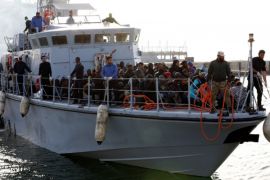
Migrant boat sinks off Tunisia, at least five dead
- 24th August 2018

Indonesia targets African market, eyes Tunisia as hub
- 4th July 2018

Indonesia, Tunisia begin negotiations on Preferential Trade Agreement
- 28th June 2018
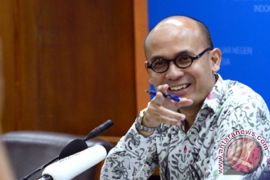
Govt warns Indonesians in Tunisia to stay alert
- 7th July 2015

Indonesia condemns terrorist attacks in Kuwait, Tunisia, France
- 27th June 2015

Tunisia PM slams EU boat destroyer mission
- 30th May 2015

Indonesia condemns Tunisia terror attack
- 19th March 2015

Medco acquires oil, gas blocks in Tunisia
- 17th June 2014
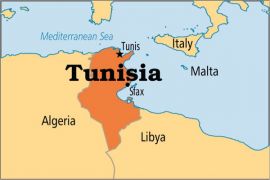
Tunisia offers Indonesia gateway to Africa
- 21st May 2013
Tunisian president`s party quits government
- 11th February 2013
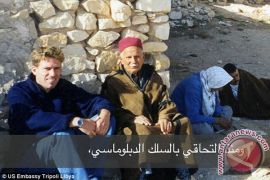
Tunisia frees suspect in Benghazi attack on US mission
- 8th January 2013
- Bahasa Indonesia
- Slovenščina
- Science & Tech
- Russian Kitchen
Cruising the Moskva River: A short guide to boat trips in Russia’s capital

There’s hardly a better way to absorb Moscow’s atmosphere than on a ship sailing up and down the Moskva River. While complicated ticketing, loud music and chilling winds might dampen the anticipated fun, this checklist will help you to enjoy the scenic views and not fall into common tourist traps.
How to find the right boat?
There are plenty of boats and selecting the right one might be challenging. The size of the boat should be your main criteria.
Plenty of small boats cruise the Moskva River, and the most vivid one is this yellow Lay’s-branded boat. Everyone who has ever visited Moscow probably has seen it.
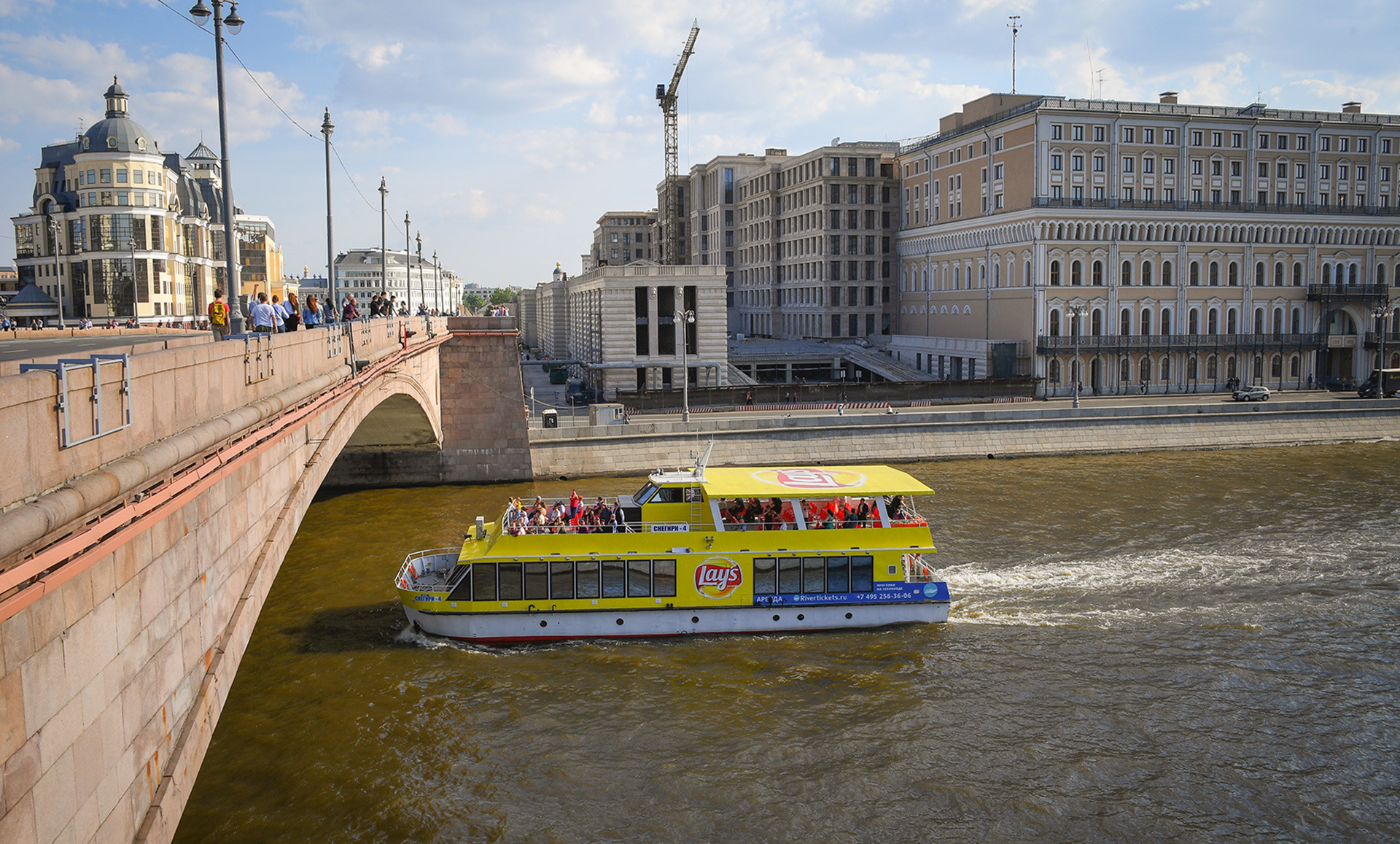
This option might leave a passenger disembarking partially deaf as the merciless Russian pop music blasts onboard. A free spirit, however, will find partying on such a vessel to be an unforgettable and authentic experience that’s almost a metaphor for life in modern Russia: too loud, and sometimes too welcoming. Tickets start at $13 (800 rubles) per person.
Bigger boats offer smoother sailing and tend to attract foreign visitors because of their distinct Soviet aura. Indeed, many of the older vessels must have seen better days. They are still afloat, however, and getting aboard is a unique ‘cultural’ experience. Sometimes the crew might offer lunch or dinner to passengers, but this option must be purchased with the ticket. Here is one such option offering dinner for $24 (1,490 rubles).
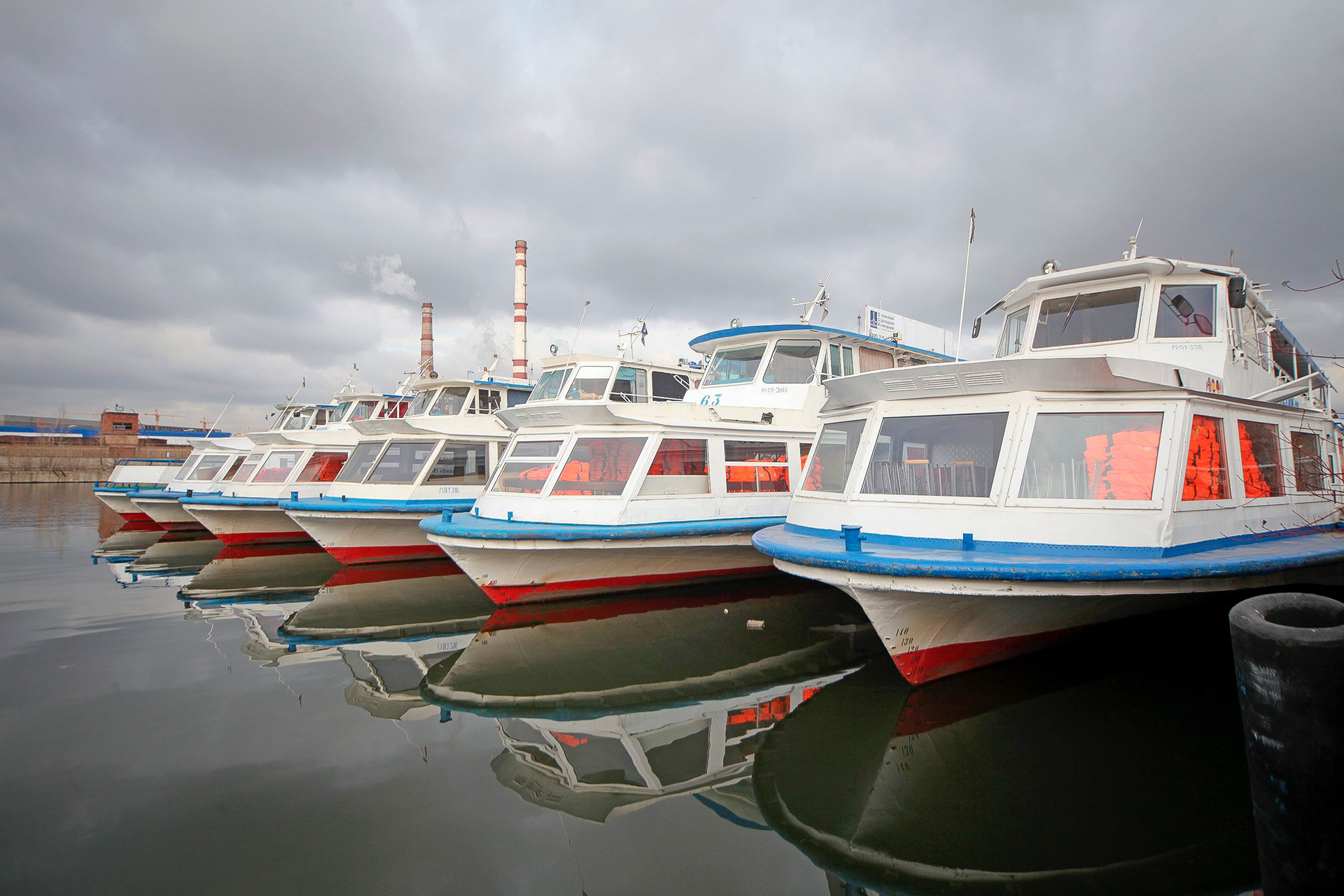
If you want to travel in style, consider Flotilla Radisson. These large, modern vessels are quite posh, with a cozy restaurant and an attentive crew at your service. Even though the selection of wines and food is modest, these vessels are still much better than other boats.
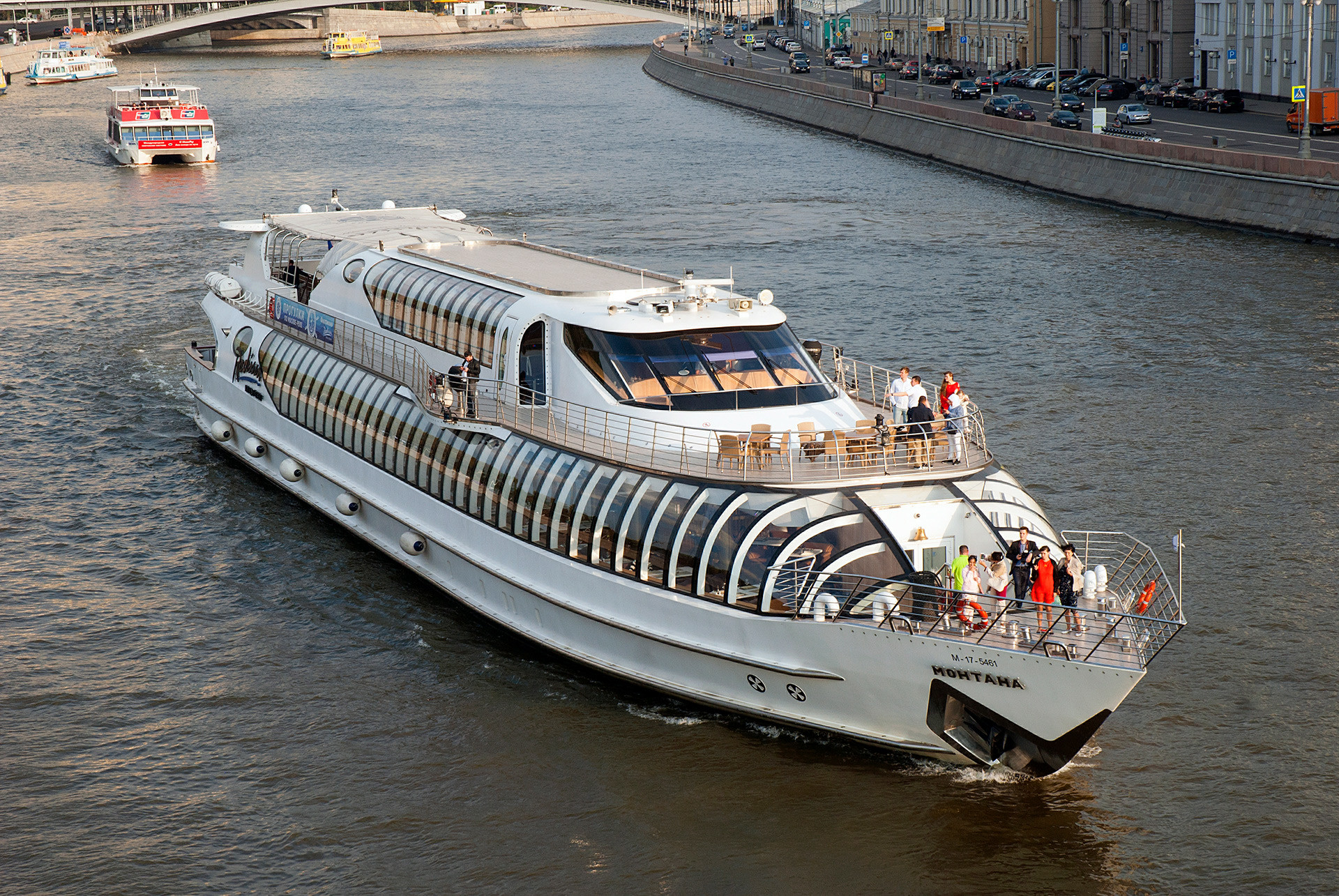
Surprisingly, the luxurious boats are priced rather modestly, and a single ticket goes for $17-$32 (1,100-2,000 rubles); also expect a reasonable restaurant bill on top.
How to buy tickets?
Women holding photos of ships promise huge discounts to “the young and beautiful,” and give personal invitations for river tours. They sound and look nice, but there’s a small catch: their ticket prices are usually more than those purchased online.
“We bought tickets from street hawkers for 900 rubles each, only to later discover that the other passengers bought their tickets twice as cheap!” wrote (in Russian) a disappointed Rostislav on a travel company website.
Nevertheless, buying from street hawkers has one considerable advantage: they personally escort you to the vessel so that you don’t waste time looking for the boat on your own.
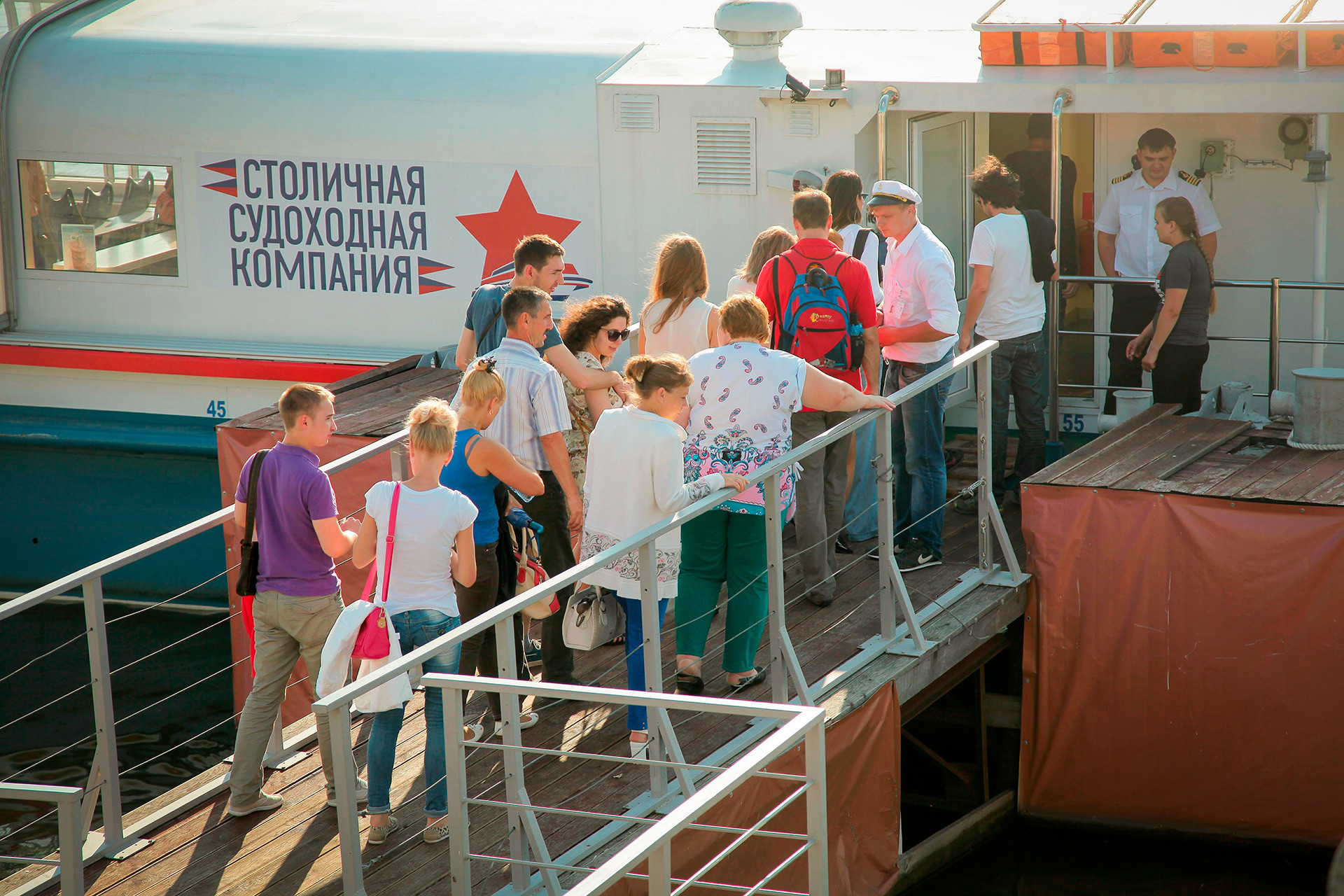
Prices start at $13 (800 rubles) for one ride, and for an additional $6.5 (400 rubles) you can purchase an unlimited number of tours on the same boat on any given day.
Flotilla Radisson has official ticket offices at Gorky Park and Hotel Ukraine, but they’re often sold out.
Buying online is an option that might save some cash. Websites such as this offer considerable discounts for tickets sold online. On a busy Friday night an online purchase might be the only chance to get a ticket on a Flotilla Radisson boat.
This website (in Russian) offers multiple options for short river cruises in and around the city center, including offbeat options such as ‘disco cruises’ and ‘children cruises.’ This other website sells tickets online, but doesn’t have an English version. The interface is intuitive, however.
Buying tickets online has its bad points, however. The most common is confusing which pier you should go to and missing your river tour.
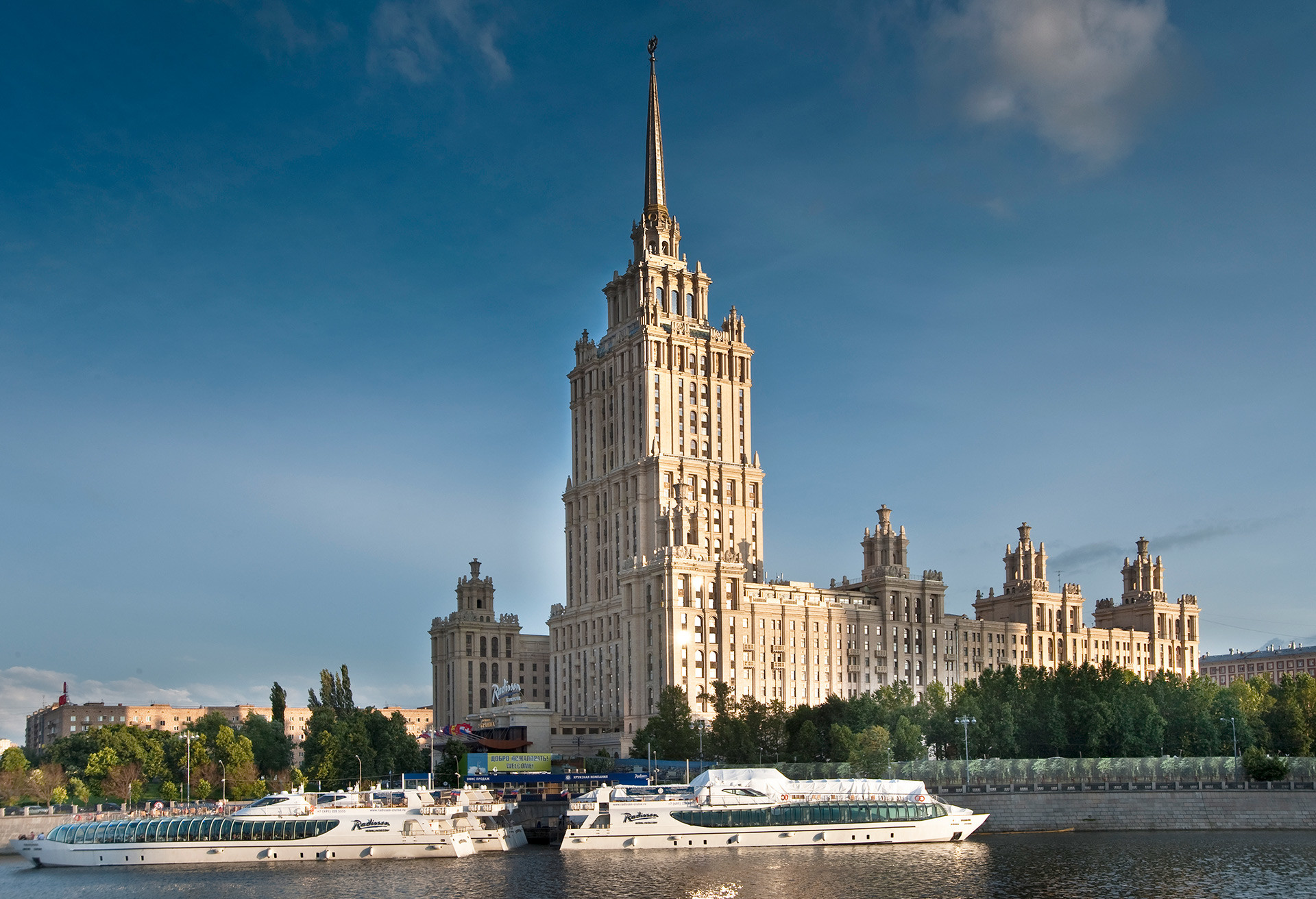
“I once bought tickets online to save with the discount that the website offered,” said Igor Shvarkin from Moscow. “The pier was initially marked as ‘Park Kultury,’ but when I arrived it wasn’t easy to find my boat because there were too many there. My guests had to walk a considerable distance before I finally found the vessel that accepted my tickets purchased online,” said the man.
There are two main boarding piers in the city center: Hotel Ukraine and Park Kultury . Always take note of your particular berth when buying tickets online.
Where to sit onboard?
Even on a warm day, the headwind might be chilly for passengers on deck. Make sure you have warm clothes, or that the crew has blankets ready upon request.
The glass-encased hold makes the tour much more comfortable, but not at the expense of having an enjoyable experience.
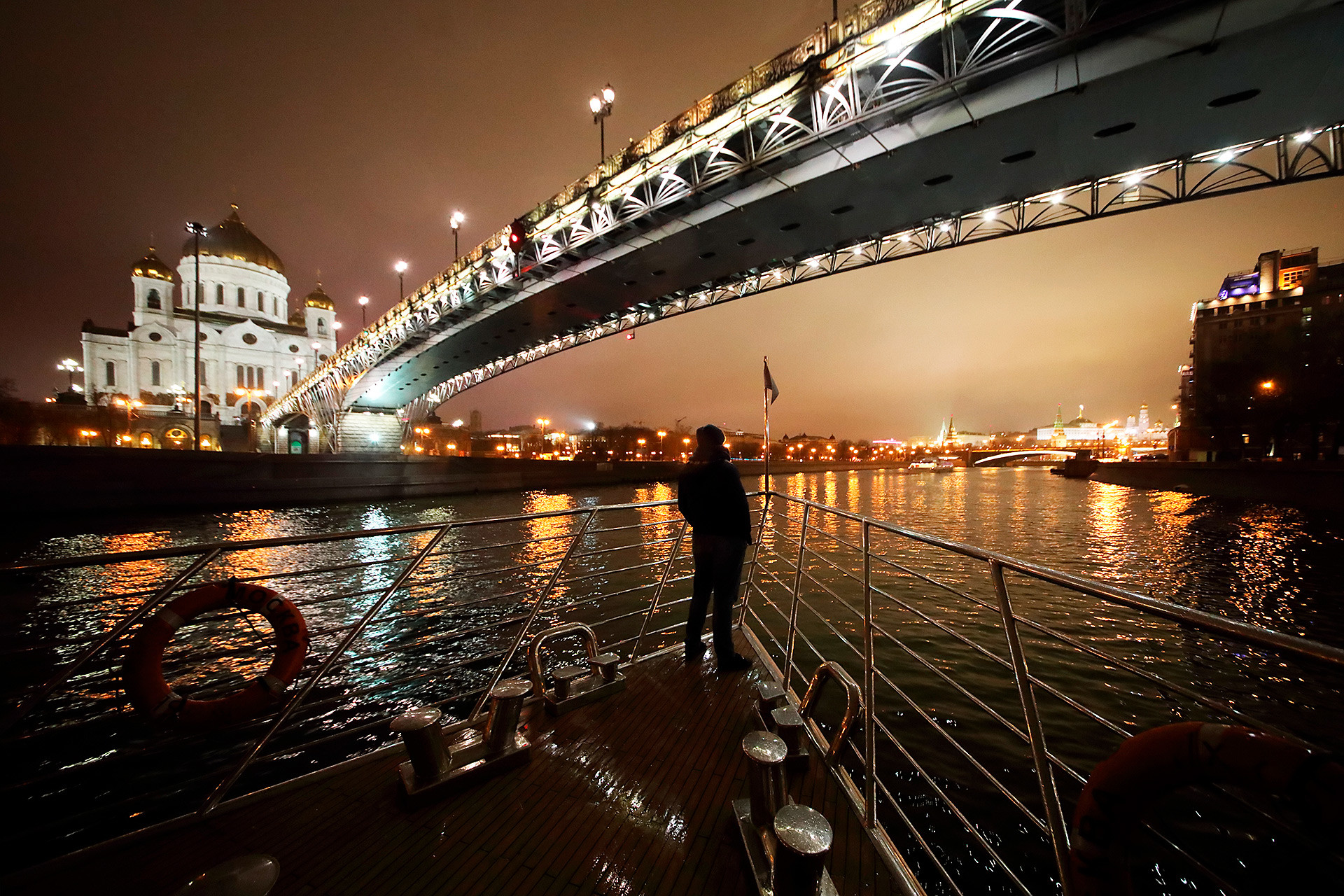
Getting off the boat requires preparation as well. Ideally, you should be able to disembark on any pier along the way. In reality, passengers never know where the boat’s captain will make the next stop. Street hawkers often tell passengers in advance where they’ll be able to disembark. If you buy tickets online then you’ll have to research it yourself.
There’s a chance that the captain won’t make any stops at all and will take you back to where the tour began, which is the case with Flotilla Radisson. The safest option is to automatically expect that you’ll return to the pier where you started.
If using any of Russia Beyond's content, partly or in full, always provide an active hyperlink to the original material.
to our newsletter!
Get the week's best stories straight to your inbox
- What to do in Moscow City, if you’re not mega-rich
- Moscow after dusk: 10 places to drink, dance, and groove
- 5 things you must do in Moscow in 2018 between football matches (or without them)
- Sandwiched between Moscow and St. Petersburg: How to spend a perfect weekend in Tver
- 24 or 48 hours in Moscow: Where to go and what to do in 2019
This website uses cookies. Click here to find out more.
Welcome to Africanews
Please select your experience

- Science & Technology
- Coronavirus
Breaking News

Libya deports 250 undocumented African, Asian migrants

Libyan Interior Minister Imed Trabelsi announced Wednesday that the north African country deported over 250 undocumented migrants from sub-Saharan African nations and Asia to their respective countries.
"Today, a group of individuals from various nationalities will be deported from this place (the Tarik al-Sikka detention centre). It involves people from Somalia, Niger, Chad, Sudan, Bangladesh and Nigeria," said Imed Trabelsi, Libyan Interior Minister.
The North African neighbors on August 10 agreed to share responsibility for providing shelter for hundreds of migrants stranded at their border, ending a month-long crisis triggered by mass expulsions of migrants by Tunis.
Some 2,000 migrants, primarily from sub-Saharan African countries, had been driven to the remote desert area of Ras Jedir by Tunisian authorities and left there to fend for themselves, according to witnesses, rights groups and UN agencies.
Additional sources • AFP
Related articles

Libya deports 600 undocumented Egyptians
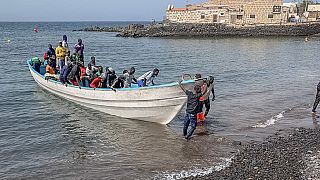
Senegal: another migrant pirogue intercepted
From the same country.
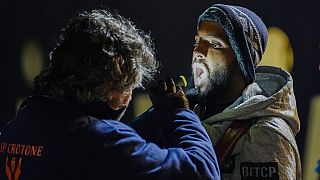
EU's border agency has a duty to inform Libya's coast guard about migrant boats
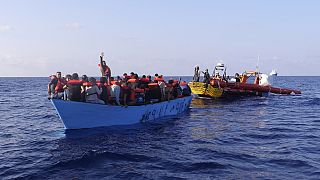
New accusation of “life-threatening” intervention by Libyan coast guards
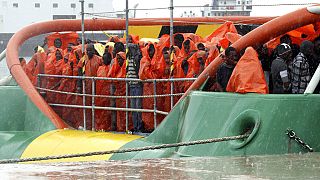
Libya's coast guard tried to prevent rescue of migrants in the Mediterranean
On the same subject.
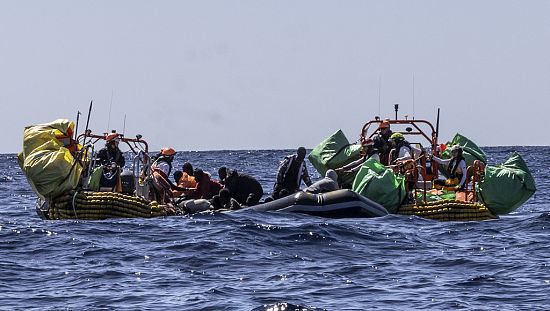
Go to video
At least 50 migrants dead on a boat coming from libya.
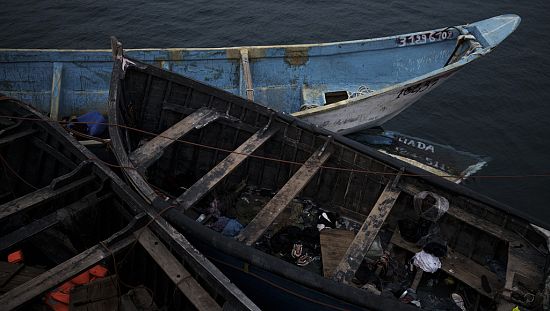
Canary Islands: 2 dead and 38 survivors on a migrant boat
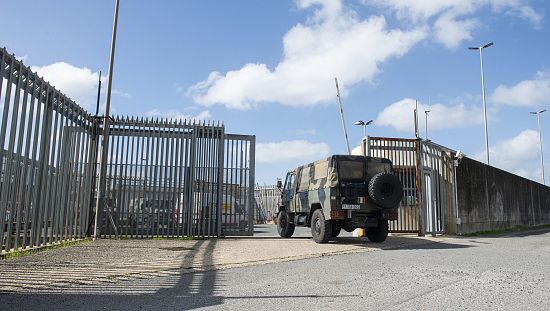
Death of young Guinean shines spotlight on conditions at Italy's migrant detention centres
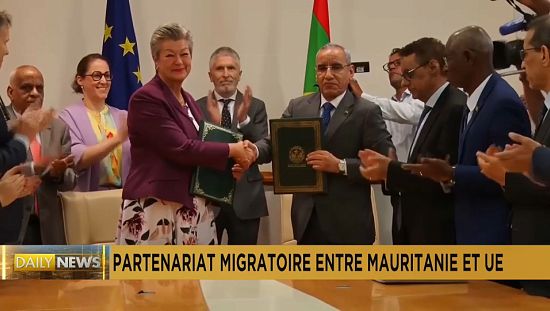
EU signs agreement to help Mauritania stop Europe-bound migrants
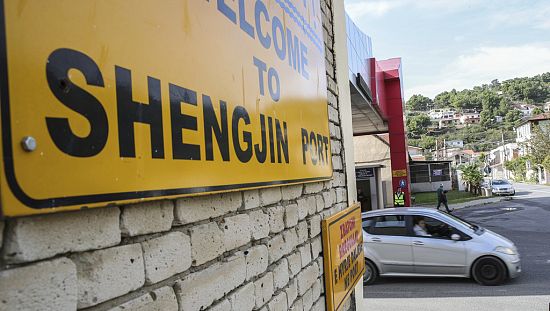

Migrants waiting in Tunisia react to Albania's controversial deal with Italy
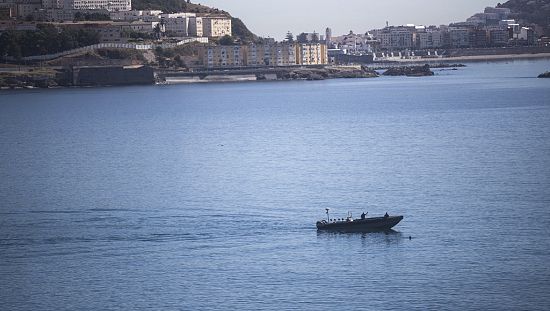
Morocco intercepts a boat with 141 people as African migrants increasingly attempt to reach Spain
More stories.
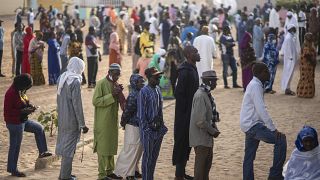
Senegal politics
Senegalese begin voting on sunday to elect new leader.

A sigh of relief after nearly 300 abducted schoolchildren freed in Nigeria

Egypt leads in medals as the 13th All-Africa Games come to an end
Libya repatriates 161 Nigerian refugees in UN-backed scheme
Nigerian embassy official in Tripoli says they are happy to be returning to their home country.
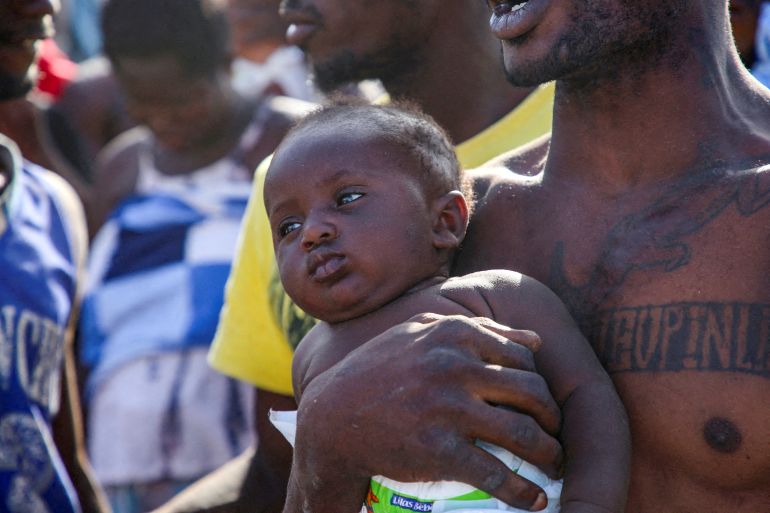
Libya has returned 161 Nigerians to their country as part of a United Nations-backed voluntary repatriation scheme amid a spike in irregular migration in North Africa.
Reports indicate that the group, about half of whom were women and also included six children, was assisted at an airport in Tripoli by the United Nations’ International Organization for Migration (IOM) and arrived in Lagos on Monday night.
Keep reading
Five dead as boat carrying refugees sinks off tunisia, niger coup leader agrees to hold direct talks with ecowas: nigerian scholar, what does libya’s political future hold, syria to libya, then europe: how people smugglers operate.
Libyan and Nigerian representatives met the people before their departure, which is one of about a dozen transports taking place this year.
Imed Trabelsi, the interior minister of the UN-recognised government based in war-torn Libya’s west, was quoted as telling reporters that “we cannot bear the burden of clandestine migration alone”.
The Nigerians who were repatriated were taken out of prisons across Libya, with the minister saying 102 were intercepted at the border crossing between Libya and Tunisia – where many are headed in the hope that they can reach Europe.
The North African neighbours on August 10 agreed to share responsibility for providing shelter for hundreds of people stranded at their border, potentially signalling an end to a crisis triggered by mass expulsions of refugees by Tunis .
Many refugees had been driven to the desert border by Tunisia last month and abandoned without food, water or shelter after violence erupted in the port city of Sfax and left one Tunisian dead.
Refugees in Tunisia said they were subjected to racist attacks, especially with Tunisian President Kais Saied targeting them in a speech in February in which he said they bring with them “violence, crime, and unacceptable practices”.
Libyan authorities said earlier this month that at least 27 people from sub-Saharan Africa have been found dead after being abandoned in the desert in temperatures over 40 degrees Celcius (104 degrees Fahrenheit).
Tunisia is also being pressured to stop refugees departing from Sfax to Europe as the European Union offers the economically suffering country a prospective 1-billion-euro ($1.1bn) aid package with major allocations for “migration control”.
The voluntary repatriation scheme in Libya has continued with help from the UN for years, having returned tens of thousands stranded in the war-scarred country to their home nations.
Libyan authorities have come under sharp criticism from the United Nations and rights groups over reported violence against refugees.
Samuel Okeri, an official with Nigeria’s embassy in Tripoli, was quoted as saying by the AFP news agency that the 161 people were “not forced back” home on Monday.
“They are going back willingly. And as you can see, they are not sad but happy to go back to Nigeria. There is no place like home,” he said.
An estimated 600,000 refugees and migrants live in Libya, which has seen 12 years of stop-start conflict since the 2011 NATO-backed revolt that toppled strongman Muammar Gaddafi.
The worst armed clashes in a year broke out in Libya’s capital earlier this month, killing at least 55 people, according to the authorities.

Imed Trabelsi
Vidéo mariage imed trabelsi 2010 wedding imad trabelsi concert.
Imed Trabelsi (born August 26, 1974 in Tunis ) is a businessman, politician, and favorite nephew of Leïla Ben Ali , the former First Lady of Tunisia , Trabelsi was formerly the mayor of La Goulette, Tunisia . Under Ben Ali's regime, Trabelsi controlled the construction industry in Tunisia, in addition to operating a franchise of the French company Bricorama .
- vido mariage imed trabelsi 2010 wedding Imad Trabelsi concert
- Imed Trabelsi vido pour vomir

Imed Tabelsi and Moaz Trabelsi (also a nephew of Leïla Ben Ali,), were both accused of the 2006 theft of a yacht owned by the French businessman Bruno Roger, chairman of the company Lazard . Imed and Moaz were suspected after the yacht was found in Sidi Bou Said . Although prosecutors brought the case to court in France, the French judge ruled the trial should take place in Tunisia. Trabelsi was found to be innocent by a Tunisian judge. Both Imed and Moaz were placed on an Interpol wanted list. The yacht was returned to its owner.

After President Zine El Abidine Ben Ali stepped down from power and fled the country as a result of the 2010–2011 Tunisian protests, Imed Trabelsi was prevented from leaving Tunisia by a pilot and was imprisoned in a "military hospital". His house in La Marsa was looted. Al Jazeera reported that Trabelsi had been killed on January 15.

Although some initial reports stated that he had been killed by a mob while at the Tunisian airport or stabbed by a fisherman in La Goulette, most reported that Trabelsi died in a military hospital after being stabbed Later reports by the Tunisian government indicated that Trabelsi was alive and being questioned by the government. He appeared in court on April 20, 2011 for drug consumption charges and is awaiting sentencing and further prosecutions. The trial has been postponed until May 7, with the judge who presided over Trabelsi's yacht theft trial being named to the case.

Imed Trabelsi : vidéo pour vomir

Imed Trabelsi, Date of Birth, Place of Birth
Imed Trabelsi
Profession: businessperson, politician
Nationality: Tunisia

About Imed Trabelsi
- Imed Trabelsi (born August 26, 1974 in Tunis) is a businessman, politician, and favorite nephew of Leïla Ben Ali, the former First Lady of Tunisia, Trabelsi was formerly the mayor of La Goulette, Tunisia.
- Under Ben Ali's regime, Trabelsi controlled the construction and alcohol industry in Tunisia, in addition to operating a franchise of the French company Bricorama.Imed Tabelsi and Moaz Trabelsi (also a nephew of Leïla Ben Ali,), were both accused of the 2006 theft of a yacht owned by the French businessman Bruno Roger, chairman of the company Lazard.
- Imed and Moaz were suspected after the yacht was found in Sidi Bou Said.
- Although prosecutors brought the case to court in France, the French judge ruled the trial should take place in Tunisia.
- Trabelsi was found to be innocent by a Tunisian judge.
- Both Imed and Moaz were placed on an Interpol wanted list.
- The yacht was returned to its owner.After President Zine El Abidine Ben Ali stepped down from power and fled the country as a result of the 2010–2011 Tunisian protests, Imed Trabelsi was prevented from leaving Tunisia by a pilot and was imprisoned in a "military hospital".
- His house in La Marsa was looted.
- Al Jazeera reported that Trabelsi had been killed on January 15.Although some initial reports stated that he had been killed by a mob while at the Tunisian airport or stabbed by a fisherman in La Goulette, most reported that Trabelsi died in a military hospital after being stabbed Later reports by the Tunisian government indicated that Trabelsi was alive and being questioned by the government.
- He appeared in court on April 20, 2011 for drug consumption charges and is awaiting sentencing and further prosecutions.
- The trial has been postponed until May 7, with the judge who presided over Trabelsi's yacht theft trial being named to the case.
- Famous People's Birthdays on 26 August, Tunisia
- Famous People's Birthdays in August, Tunisia
- Famous businessperson's Birthdays on 26 August, Tunisia
- Famous businessperson's Birthdays in August, Tunisia
- Famous politician's Birthdays on 26 August, Tunisia
- Famous politician's Birthdays in August, Tunisia
Image Author, Source and License
- Politics & Security
- Economy & Business
Truce holds in Libya after clashes kill 55
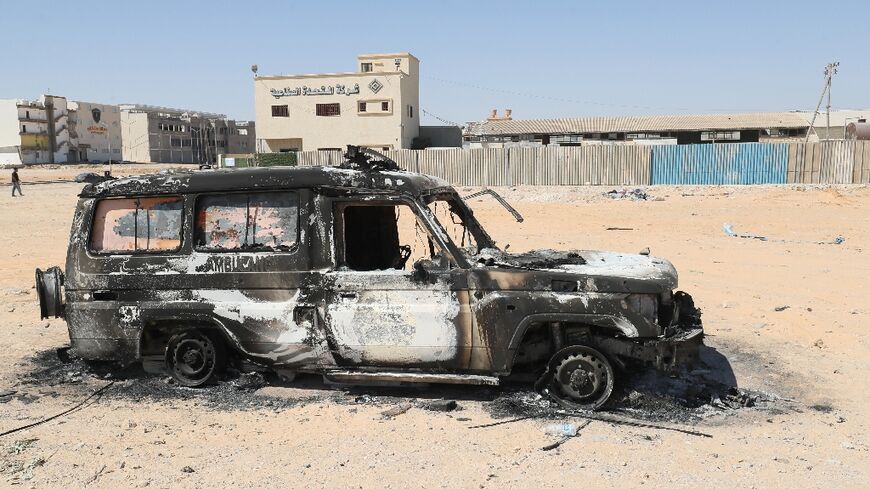
Tripoli's worst armed clashes in a year have killed 55 people and wounded 146, Libyan media reported Wednesday, after a truce took hold in the capital and air traffic resumed.
Fighting raged from Monday night into Tuesday between the influential 444 Brigade and the Al-Radaa, or Special Deterrence Force, two of the myriad of militias that have vied for power since the 2011 overthrow of longtime dictator Moamer Kadhafi.
In August last year, 32 people were killed and 159 wounded in Tripoli during battles between divided Libya's two rival administrations.
Libya's Al-Ahrar TV updated the death toll in the latest fighting to 55, citing Malek Mersit, spokesman for the Emergency Medical Centre which handles emergency response in the country's west.
Libya has seen more than a decade of stop-start conflict since the NATO-backed revolt that toppled Kadhafi.
A period of relative stability had led the United Nations to express hope for delayed elections to be held this year. The latest unrest shows how urgently those elections are needed, the European Union said.
The clashes with rocket launchers and machine guns followed the detention of the 444 Brigade head, Colonel Mahmud Hamza, by the rival Al-Radaa Force on Monday, an interior ministry official said.
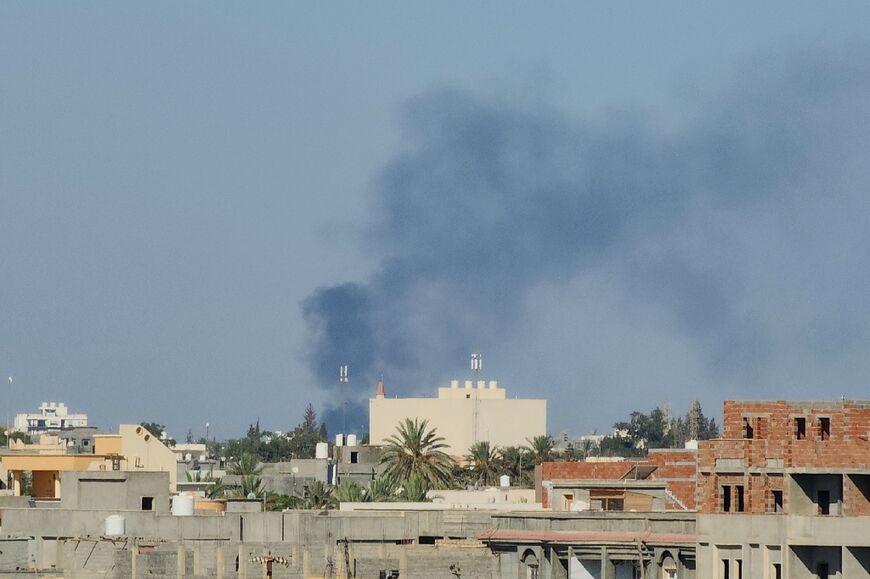
Late Tuesday, the social council in the southeastern suburb of Soug el-Joumaa, a stronghold of Al-Radaa, announced that an agreement had been reached with Prime Minister Abdelhamid Dbeibah, head of the UN-recognised government in Tripoli, for Hamza to be handed over to a "neutral party".
The council said on TV that a ceasefire would follow the transfer of the force's commander.
Later on Tuesday the fighting abated.
Both armed groups are aligned with Dbeibah's government.
Overnight Tuesday-Wednesday, Dbeibah visited the southeastern suburb of Ain Zara, which saw some of the heaviest fighting, accompanied by Interior Minister Imed Trabelsi.
Dbeibah "saw for himself the severity of the damage" as he toured the densely populated neighbourhood's unlit streets, his government's press office said on its Facebook page.
He gave instructions for a survey of the damage to be carried out so residents could be compensated, it added.
The interior ministry put in place a security plan to deploy officers to battleground districts for overseeing the truce.
- Airport reopens -
The Libyan capital's only civilian airport, Mitiga, in an area under Al-Radaa's control, reopened to commercial flights on Wednesday, officials said. Flights had been diverted to Misrata about 180 kilometres (110 miles) to the east.
In May, the same armed groups had clashed for hours in Tripoli, also after the arrest of a 444 Brigade member, but only minor injuries resulted.
During the latest fighting, 234 families were evacuated from frontline areas in Tripoli's southern suburbs, along with dozens of doctors and paramedics trapped while caring for the wounded, the Emergency Medical Centre said.
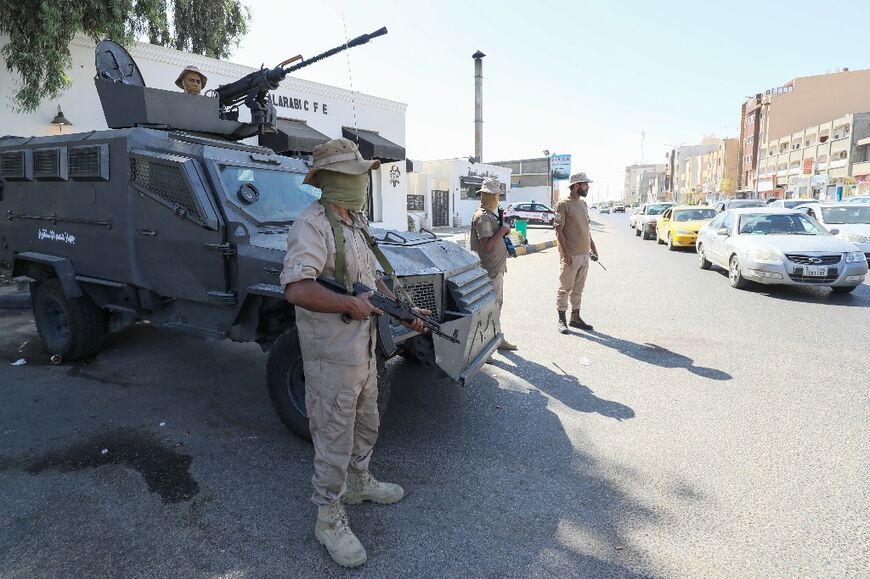
Human Rights Watch Libya researcher Hanan Saleh expressed outrage that armed groups continued to settle their differences with heavy weaponry in residential areas without being held accountable.
"Nothing will change unless there are consequences," she said.
Libya specialist Jalel Harchaoui saw the latest fighting as a struggle over territory.
He said it highlighted the failure of the international community to address the problem of the militias and shows that "the past three years have been wasted" by diplomats, peace-building specialists and others.
"Tripoli is a territory even more dominated by the militias than before," Harchaoui said.
A European Union statement called the latest events "a vivid reminder of the fragility of the security situation in Libya and the urgent need for elections in order to find a sustainable and inclusive political solution".
An election had been due in December 2021, but disputes including who could stand resulted in its indefinite suspension, although the UN has been working to end sticking points.
The 444 Brigade is affiliated with Libya's defence ministry and is reputed to be the North African country's most disciplined armed group.
The Al-Radaa force is a powerful ultra-conservative militia that acts as the capital's police force.
Libya is split between Dbeibah's UN-backed government in the west and another in the east backed by military strongman Khalifa Haftar.
Sign up for our newsletter
Daily briefing, the takeaway, week in review, business & tech briefing, security briefing, china-middle east briefing, gulf briefing, turkey briefing, israel briefing, palestine briefing, us confrontation with iran’s proxies: live q&a with jared szuba and elizabeth hagedorn.

The Israel-Hamas War: Live Q&A with Amb. David Satterfield (Part 2)

Choose your path to continue reading
Read in Türkçe, فارسی.
Enjoy your complimentary article
Provide your email and get free access to one article.
Thank you! Check your email to view your article.
You have already accessed your free article. Please consider subscribing to access all of Al-Monitor.
Or get unlimited all-access
Subscribe now to access all Al-Monitor content.
- All News & Analysis
- Memos & Reports
- All Newsletters
Oops! It looks like you already enjoyed your free article
To continue reading Al-Monitor articles, please subscribe.
Get unlimited all-access
- Guided tour
River Cruise on Luxurious Radisson Boat
- Description
- Choose date

Equipped with ice-breaking technology, these huge fancy yachts are the only river cruisers running all year around. The round trip journey takes two and a half hours and floats past all the big sights like the White House, Novodevichy monastery and the Kremlin. There’s a large open air observation deck up top, while the main body of the ship houses a restaurant with a dance floor for a romantic post dinner dance. For a particularly romantic experience take one of the evening boats and admire the bright lights of the city skyline at night.
The most relaxing and picturesque tour that Moscow can offer: a great way to see the city center and its main attractions. This is a perfect alternative to exploring the city by car, if you only have time to do sightseeing during weekday rush hours.
Your English-speaking guide is eager to share every bit of their knowledge about the surrounding landscape, the architecture and historical details.
We conduct Moscow river tour on Radisson Flotilla boats all year around! It’s warm inside during winter months, while there’s air conditioning during hot summer days. You may also treat yourself to drinks, lunch or dinner on board (drinks and food are not included in tour price).
The cost of an excursion with a personal guide for 1 person
Quay at Radisson Collection Hotel
Government Headquarters ("the White House")
Kievsky Railway Central
Novodevichy Convent
Luzhniki Stadium
Academy of Sciences
Monument to Peter I
Cathedral of Christ the Saviour
Moscow Kremlin
St.Basil's Cathedral
Novospassky Monastery
U-turn and back to Quay at Radisson Royal Hotel
Choose your dates
Who's going.
- Excursion River Cruise on Luxurious Radisson Boat
- Date and time:
- Who's going:
See photo of the meeting point
THE 10 BEST Moscow Boat Tours
Boat tours in moscow.
- Adrenaline & Extreme Tours
- Gear Rentals
- Nature & Wildlife Tours
- 5.0 of 5 bubbles
- 4.0 of 5 bubbles & up
- 3.0 of 5 bubbles & up
- 2.0 of 5 bubbles & up
- 3rd Transport Ring (TTK)
- District Central (TsAO)
- Garden Ring
- Boulevard Ring
- Good for Couples
- Good for Big Groups
- Good for Kids
- Good for a Rainy Day
- Budget-friendly
- Honeymoon spot
- Adventurous
- Hidden Gems
- Good for Adrenaline Seekers
- Things to do ranked using Tripadvisor data including reviews, ratings, photos, and popularity.
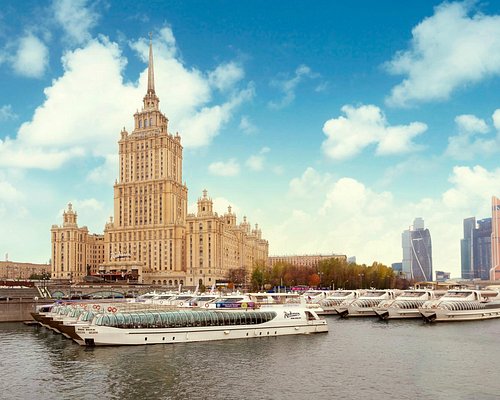
1. Flotilla Radisson Royal

2. Moscow River Boat Tours

3. CheapRussia Tours
4. Erwin. Reka
5. Lovely Russia Tours

6. Capital River Boat Tours - Moscow Centre

7. MORE MOSCOW
8. Mosparokhodstvo
9. S-cruises
10. Water Taxi
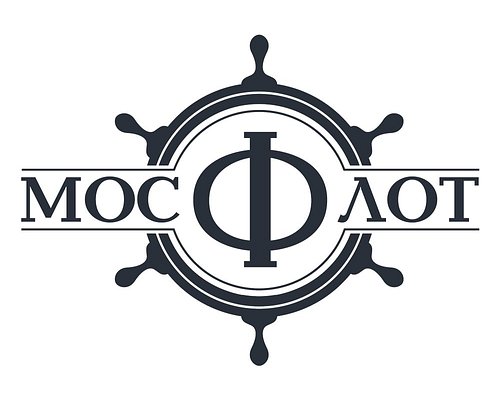
11. MosFlot

12. Insider Moscow Tours

13. UTS GROUP

14. Russia CityPass

15. Argo Travel
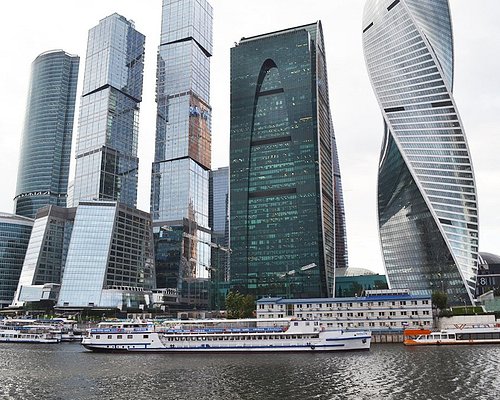
16. Moskva Flot

17. Magiya Otdykha

18. Moscowkremlintours
19. moskva s gidom.

20. Moskvatrip

21. DIVAS TOUR

22. Follow Locals

23. S-Cruises

24. Miceversa

25. russian travel and tours
26. nizhny novgorod 4* vodohod.

28. Ksenia Maximova

29. Mosflot.ru
What travelers are saying.

- CheapRussia Tours
- Lovely Russia Tours
- MORE MOSCOW
- Insider Moscow Tours
- Russia CityPass
- Flotilla Radisson Royal
- Moscow River Boat Tours
- Erwin. Reka

IMAGES
COMMENTS
Imed Tabelsi and Moaz Trabelsi (also a nephew of Leïla Ben Ali), were both accused of the 2006 theft of a yacht owned by the French businessman Bruno Roger, chairman of the company Lazard. Imed and Moaz were suspected after the yacht was found in Sidi Bou Said.
The man reportedly behind the caper was Leila's nephew Imed Trabelsi, whose stocky frame and slicked-back salt-and-pepper hair were worthy of a lieutenant in the Soprano family. ... The yacht was ...
Imed Trabelsi Nephew of the first couple successfully defended himself in 2008 court case in which he was accuse of involvement in the theft of a luxury yacht from a Corsican harbour.
French prosecutors suspected him and another of Leila Trabelsi's nephews of having ordered the 2006 theft of a yacht belonging to a French investment banker that turned up in the Tunisian port of ...
Imed was believed to be a favorite nephew of Laila Trabelsi, the wife of Zine El Abidine Ben Ali. ... Imed was accused of and placed under judicial investigation over the alleged theft of a yacht from a French businessman in 2006. 1, 2. Information Identifying information.
There were, in the first few years, some small but meaningful wins. In April 2013, $28.8 million was confiscated from Leila Trabelsi's bank account in Lebanon and transferred back to Tunisia, while the planes and yachts in which the family fled were returned to Tunisia from Switzerland, Spain, and Italy.
Après enquête des gendarmes toulonnais et corses, Imed Trabelsi est identifié comme naviguant dans la région de Sidi Bou Saïd, sur le prestigieux yacht, et usant de son influence pour hâter l'immatriculation du navire sur place [6], [11], [12]. Le 26 mai, des scellés sont posés sur le navire sur ordre de la justice française [11].
عماد الطرابلسي. Imed was believed to be a favorite nephew of Laila Trabelsi, the wife of the former Tunisian president Zine El Abidine Ben Ali. He was born in Tunis on 26 August 1974 to Najia Jeridi. Imed was a businessman and it is believed that together with Belhassen Trabelsi they controlled a large part of the Tunisian business ...
Imed Trabelsi Trabelsi. Le juge Jean-Bastien Risson, instructeur de l'affaire des « yachts volés » a eu la joie un peu trop précipitée en signant, le 31 juillet dernier, l'ordonnance de renvoi du désormais réputé délinquant international, Imed Trabelsi et de son frère Moez. La « raison d'Etat » a eu raison de son obstination ...
Affaire des yachts volés : Imed Trabelsi clame son innocence en vidéo. 28 Sep 2009 / Malek Khadhraoui. […] Dans un français laborieux, Imed Trabelsi s'exprime face à la caméra en récitant un texte appris par cœur. Pas de grandes révélations à part pour les deux témoins, l'un français et l'autre tunisien, qui selon Imed ...
About Press Copyright Contact us Creators Advertise Developers Terms Privacy Policy & Safety How YouTube works Test new features NFL Sunday Ticket Press Copyright ...
Tunis (ANTARA News/Xinhua-OANA) - A court in the Tunisian capital sentenced Imed Trabelsi, nephew of former president Zine El Abidine Ben Ali`s wife, to 18 years in prison and a fine of 150, 000 dinars (nearly 110,000 U.S. dollars) for involvement in the issuance of bounced checks, the state-run press agency TAP reported Friday.
Son of Selma Hassen, retired, and a widower. Moez Trabelsi is a nephew of Laila Trabelsi, the wife of Zine El Abidine Ben Ali. Son of Yamina Souiei, born on 3 July 1973. During the Ben Ali era, he was one of the nephews of Laila Trabelsi most active in the business. Together with Imed Trabelsi, they were accused and investigated over theft of a ...
Surprisingly, the luxurious boats are priced rather modestly, and a single ticket goes for $17-$32 (1,100-2,000 rubles); also expect a reasonable restaurant bill on top.
Interview de Mr Imed Trabelsi pour "Sept à huit"Émission "Sept à huit" du 27/09/2009 sur TF1
Libya. Libyan Interior Minister Imed Trabelsi announced Wednesday that the north African country deported over 250 undocumented migrants from sub-Saharan African nations and Asia to their ...
Imed Trabelsi, the interior minister of the UN-recognised government based in war-torn Libya's west, was quoted as telling reporters that "we cannot bear the burden of clandestine migration ...
Imed Trabelsi (born August 26, 1974 in Tunis) is a businessman, politician, and favorite nephew of Lela Ben Ali, the former First Lady of Tunisia, Trabelsi was formerly the mayor of La Goulette, Tunisia. Under Ben Ali's regime, Trabelsi controlled the construction industry in Tunisia, in addition t
Both Imed and Moaz were placed on an Interpol wanted list. The yacht was returned to its owner.After President Zine El Abidine Ben Ali stepped down from power and fled the country as a result of the 2010-2011 Tunisian protests, Imed Trabelsi was prevented from leaving Tunisia by a pilot and was imprisoned in a "military hospital".
Tripoli's worst armed clashes in a year have killed 55 people and wounded 146, Libyan media reported Wednesday, after a truce took hold in the capital and air traffic resumed.Fighting raged from Monday night into Tuesday between the influential 444 Brigade and the Al-Radaa, or Special Deterrence Force, two of the myriad of militias that have vied for power since the 2011 overthrow of longtime ...
Equipped with ice-breaking technology, these huge fancy yachts are the only river cruisers running all year around. The round trip journey takes two and a half hours and floats past all the big sights like the White House, Novodevichy monastery and the Kremlin. There's a large open air observation deck up top, while the main body of the ship ...
Buy tickets. River Cruise aboard a River Palace Yacht from City-Expocentre (International Exhibition) HIT SALES. Daily, from April 27, 2024. Departure from the berth City-Expocentre (m. Vystavochnaya), mooring place "A". Cruise duration 3 hours. We invite you on a river cruise aboard a premium class panoramic yacht starting from the main Moscow ...
Taganskiy. By WorldTraveler0723. I had a fantastic day trip from Moscow visiting Vladimir and Suzdal. It was great getting outside of Moscow and seeing... 8. Mosparokhodstvo. 42. Boat Tours • Sightseeing Tours. Dorogomilovo.